Travel Guides, Info & Tips Blog

The Top 25 Qualities of an Effective Tour Guide-Guiding the Way
Are you passionate about travel and enjoy sharing your knowledge with others? Becoming a tour guide might be the perfect career path for you. Being a practical tour guide requires a unique set of skills and qualities that go beyond simply knowing the facts about a destination. In this article, we will explore the 25 qualities of a practical tour guide and how they contribute to creating memorable and enriching travel experiences.
Being an effective tour guide is not just about knowing the destination but also about possessing a range of qualities that enhance the overall experience for travelers. From excellent communication skills to a deep passion for the subject matter, a practical tour guide can make all the difference in creating memorable and meaningful experiences for their guests.
In this article, we will explore 25 essential qualities for any tour guide looking to excel in their profession. Whether you are already a tour guide or aspiring to become one, this comprehensive guide will provide valuable insights and tips to enhance your skills and become an exceptional tour guide.
Table of Contents
What Qualities Do I Need To Be A Tour Guide?
To be a successful tour guide, there are several essential qualities that you should possess.
- Firstly, strong communication skills are vital. As a tour guide, you will need to convey information to your clients clearly and engagingly effectively. Excellent verbal and written communication skills will help you effectively communicate historical facts, local customs, and interesting anecdotes.
- Secondly, a deep knowledge and passion for the subject matter is crucial. Whether you are guiding tourists through a historical city, leading a nature hike, or conducting a food tour, you should have a thorough understanding of the area’s history, culture, and attractions. This knowledge will not only enhance your credibility as a guide but also enable you to answer questions and provide interesting insights to your clients.
- Lastly, being personable and friendly are essential qualities for a tour guide. You will interact with people from various backgrounds and cultures, so being approachable and adaptable is critical. Your enthusiasm and positive attitude will not only make the tour more enjoyable for your clients but also help create a welcoming and inclusive environment.
In conclusion, to be a successful tour guide, you should possess strong communication skills, a deep knowledge and passion for the subject, and be personable and friendly. These qualities will help you effectively engage and connect with your clients, making their experience memorable and enjoyable.
What Skills Make A Tour Guide With 5-Star Quality?
Regarding being a tour guide with 5-star quality, several critical skills are essential. Firstly, excellent communication skills are crucial. A tour guide must effectively convey information, engage with their audience, and answer questions. Clear and concise communication is essential to ensure tourists have a memorable and enjoyable experience.
In addition to communication skills, a tour guide should also have extensive knowledge and expertise in the area they are guiding. This includes historical facts, cultural insights, and local tips and recommendations. A 5-star tour guide is well-prepared and can provide accurate and exciting information, enhancing the tour experience.
Furthermore, a tour guide with 5-star quality must possess exceptional customer service skills. They should be friendly, approachable, and able to create a positive and welcoming atmosphere. A great tour guide understands the importance of personalizing the experience for each tourist and goes above and beyond to ensure their satisfaction. From anticipating needs to providing an exceptional level of service, these skills are vital in creating a memorable tour experience.
What Is The Most Important Quality Of Becoming An Effective Tour Guide?
When it comes to becoming a practical tour guide, several qualities are important to possess. However, one of the most crucial qualities is knowledge. A tour guide must have extensive knowledge about the destination they are guiding tourists through. This includes knowing about the history, culture, landmarks, and other important aspects of the place. Being well-informed allows the tour guide to provide accurate and interesting information to the tourists, enhancing their overall experience.
In addition to knowledge, communication skills are also essential for an effective tour guide. Communicating clearly and concisely is important in delivering information to the tourists. A tour guide must be able to articulate their thoughts and ideas in a way that is easily understandable to a diverse group of people. Good communication skills also involve listening to the tourists’ questions and feedback and being able to respond appropriately.
Lastly, enthusiasm and passion for the job set apart a great tour guide from an average one. A tour guide who is genuinely excited about the destination and their role in showcasing it will be able to create a positive and engaging atmosphere for the tourists. Their enthusiasm will be contagious, making the tour more enjoyable and memorable for everyone involved.
What Are The 5 Roles Of A Tour Guide?
A tour guide plays multiple roles in ensuring a successful and enjoyable travel experience for their guests. Here are the five primary roles of a tour guide:
1. Informer: The primary role of a tour guide is to provide accurate and relevant information about the destination. They should be knowledgeable about the history, culture, landmarks, and other significant aspects of the place. Tour guides should be able to answer questions, share interesting facts, and engage their guests in informative discussions.
2. Interpreter: Tour guides bridge the gap between different cultures and languages. They act as interpreters, translating information and conversations for their guests. They ensure effective communication between locals and visitors, enhancing the understanding and appreciation of the destination.
3. Organizer: Tour guides are responsible for planning and organizing the itinerary. They arrange transportation, accommodation, and activities, ensuring a smooth and efficient travel experience. They handle logistics, such as coordinating schedules, managing reservations, and running any unforeseen circumstances that may arise during the trip.
25 Qualities Of An Effective Tour Guide Pdf
To view a PDF document that provides more detailed information on these 25 qualities of a practical tour guide, please click the link below: 25 Qualities of an Effective Tour Guide PDF.
25 Qualities Of An Effective Tour Guide Ppt
https://www.slideshare.net/jen199629/qualities-of-an-ideal-tour-guide
Skills Of A Tour Guide
- Communication Skills:
- Clear and confident speaking voice
- Appropriate language for the audience
- Ability to engage and connect with travelers
- Responsive to questions and concerns
- In-Depth Knowledge:
- Strong understanding of the destination’s history, culture, and attractions
- Staying updated on current events and changes in the area
- Organization and Time Management:
- Creating well-planned itineraries
- Efficient coordination of transportation and accommodations
- Handling unexpected situations effectively
- Interpersonal Skills:
- Building rapport with clients
- Friendliness and approachability
- Patience and attentiveness
- Sense of Humor:
- Creating a relaxed and enjoyable atmosphere
These skills and qualities collectively contribute to a tour guide’s ability to offer travelers an exceptional experience during their journey.
Characteristics of an Exceptional Tour Guide
- Knowledgeable: Possesses in-depth knowledge of the destination’s history, culture, and attractions.
- Excellent Communication Skills: Communicates information clearly and effectively to travelers.
- Enthusiastic: Inspires excitement and engagement among tour participants with their passion for the subject matter.
- Flexible: Adapts easily to unforeseen situations and changes in the itinerary.
- Organized: Ensures a smooth and efficient tour experience through careful planning and preparation.
- Problem-Solving Abilities: Capable of finding solutions quickly and efficiently, especially in challenging situations.
- Multilingual: Speaks multiple languages to cater to a diverse group of travelers.
How to Become an Effective Tour Guide
- Gain Extensive Knowledge: Conduct thorough research to acquire a deep understanding of the destination you’ll be guiding.
- Develop Communication Skills: Practice and consider attending public speaking courses to improve your ability to convey information effectively.
- Cultivate Enthusiasm: Stay curious and continuously learn about new attractions and experiences to maintain a high passion for your subject.
- Enhance Adaptability: Seek opportunities to work in different environments and practice handling unexpected situations to become more flexible.
- Improve Organizational Skills: Create detailed itineraries and proactively plan logistics for a well-organized tour.
- Sharpen Problem-Solving Abilities: Participate in scenario-based training programs or seek advice from experienced tour guides to become a more effective problem solver.
- Learn Additional Languages: Consider taking language courses or participating in immersion programs to become multilingual.
10 Characteristics Of A Tour Guide
- Knowledgeable
- Communication skills
- Flexibility
- Organizational skills
- Interpersonal skills
- Problem-solving
- Professionalism
- Sense of humor
As A Tour Guide, How Will You Manage Tourist With High Expectations?
Strategies for Managing Tourists with High Expectations
1. Listen Actively: Listen to tourists’ expectations, interests, and preferences.
2. Manage Expectations: Be transparent about what the tour can realistically offer and set clear expectations.
3. Provide Detailed Information: Ensure tourists have comprehensive information about the tour itinerary, attractions, and activities.
4. Be Knowledgeable and Professional: Demonstrate expertise in destinations, history, culture, and local customs.
5. Offer Personalized Experiences: Tailor the tour to cater to individual preferences, arranging special interests-based activities.
6. Maintain Effective Communication: Keep tourists informed about changes and provide alternative options.
7. Handle Complaints Professionally: Address dissatisfaction empathetically, offering solutions to resolve concerns.
8. Seek Feedback: Encourage tourists to provide feedback after the tour to improve future experiences.
What makes a great tour guide and host? | Rick Steves | TEDxSeattleSalon
In conclusion, a practical tour guide is vital in crafting unforgettable travel experiences. With extensive knowledge, excellent communication, and adaptability, they enrich journeys and create lasting memories. Beyond information, they foster a sense of camaraderie and storytelling, making them essential for exceptional adventures.
In conclusion, an effective tour guide plays a vital role in crafting unforgettable travel experiences. With qualities such as extensive knowledge, excellent communication, and adaptability, they enrich journeys and create lasting memories. Beyond information, they foster a sense of camaraderie and storytelling, making them essential for exceptional adventures.
Effortless booking
Maximize online conversions with the most intuitive checkout online.
Expand revenue with our powerful Automated E-commerce tools.
Upgrade your website to industry’s best. Fresh websites. Fresh revenue.
Amplify visibility and expand earnings with integrated OTAs and local partners.
Streamline check-ins, limit risk, and amplify customer data with built-in digital waivers.
Transform data into insights. X-ray reporting gives you customer and business intelligence.
Manage high-volume walk-up customers effortlessly with POS, ticketing, and gated entry.
Automate management of staff schedules, assignments, and staff communications
Control your business precisely the way you want with endless yet easy configurability.
Allocate equipment used in various products. Prevent overbookings and maximize profits.
Grow with Xola in our constantly expanding universe of integrations and apps.
Harness customer data to drive marketing campaigns and generate repeat business.
Transform your guests into passionate brand advocates. Perfect your products & services.
Manage your business with the most powerful mobile suite in the industry.
Perfect the guest experience by giving your staff the industry’s most intuitive software.
Efficiently manage guest flow, minimize wait times, and ensure maximum satisfaction.
Ticketing & Entry
Revolutionize your guest experience: Effortless check-ins, interactive displays, secure payments.
Boost revenue with automated rave reviews, actionable insights, and loyal customer engagement.
Efficient ticketing, digital waivers, and fast check-ins enhance on-site operations and guest satisfaction.
Explore Xola Universe: 80+ apps, limitless integrations, endless growth opportunities.
Simplify check-in and boost your marketing efforts with our integrated automated digital waivers.
With SOC 2 Type II and CCPA compliance Xola exceeds industry security standards and insures your data protection.
Access real-time insights for business growth with our powerful reporting.
Remarkable and hassle-free guest experiences with waitlist and virtual queuing.

How you can incorporate AI when upselling tours
- Xola University
- Business Operations
13 Tips To Be a Better Tour Guide
Being a tour guide is a fun, exciting, and rewarding job. You spend your days sharing your knowledge and chatting with guests.
While you will improve your skills naturally with every tour you provide, there are some things you can to more proactive build your skills.
In this post, we’re sharing 13 tips to help you be a better tour guide, including:
- What is a tour guide?
- What are the different types of tour guides?
What Are the Key Job Responsibilities for a Tour Guide?
13 top tips to be a better tour guide, what is a tour guide .
A tour guide is a professional who leads groups or individuals through tourist attractions, providing them with information, stories, and insights about the location, its history, culture, and significance.
Tour guides are responsible for ensuring that the tour is informative, engaging, and enjoyable for participants.
They often have expertise in specific areas such as historical sites, natural landmarks, museums, or cultural experiences, and they use this knowledge to enhance the visitors’ understanding and appreciation of the places they visit.
Additionally, tour guides handle logistical aspects of the tour, such as managing schedules, coordinating with other service providers, and addressing any questions or concerns from the participants.
What are the different types of tour guides?
Here are some of the different types of public and private tour guides across the tourism industry.
- Historical Tour Guides – Specialize in guiding tourists through historical sites, monuments, and museums. They provide detailed information about the history, architecture, and significance of the locations.
- Adventure Tour Guides – Lead tourists on adventurous activities such as hiking, rafting, or wildlife safaris. They are knowledgeable about outdoor survival skills, safety protocols, and the natural environment.
- Cultural Tour Guides – Focus on the cultural aspects of a location, including traditions, customs, festivals, and local lifestyles. They often guide tourists through cultural landmarks, markets, and festivals.
- City Tour Guides – Conduct tours within a specific city, highlighting its landmarks, neighborhoods, historical sites, and popular attractions. They provide insights into the city’s history, architecture, and modern-day life.
- Museum Guides – Work within museums to provide in-depth information about the exhibits, artifacts, and artworks. They often conduct guided tours, educational programs, and workshops.
- Eco Tour Guides – Specialize in ecotourism and sustainable travel. They guide tourists through natural environments, focusing on conservation, wildlife, and the ecosystem while promoting responsible travel practices.
- Special Interest Guides – Cater to niche interests such as food tours, wine tours, ghost tours, or photography tours. They have specialized knowledge in their area of interest and provide unique, themed experiences.
- Tour Managers: – Oversee the entire tour experience, often for longer trips or multiple destinations. They handle logistics, coordinate with local guides, manage schedules, and ensure the overall success of the tour.
- Driver Guides – Combine the roles of driver and guide, offering guided tours while driving tourists to different locations. This is common in regions where driving between sites is necessary.
Tour guides have to manage various responsibilities throughout their day to provide memorable experiences for guests. Successful tour guides enjoy working with people, are excellent storytellers, and solve problems independently.
Tour guides have to manage multiple responsibilities throughout their day, including:
- Greeting visitors and interacting with them before the start of the tour
- Letting participants know about the tour’s itinerary and rules
- Planning and managing the itinerary
- Learning and memorizing interesting details and facts and turning them into stories
- Having a strong understanding of your tour’s layout and location
- Setting up and maintain equipment before the start of a tour if necessary
- Being prepared in case of an emergency
- Ensuring guests remain safe and follow all proper protocols
Successful tour guides continuously build and improve their skills throughout their careers to provide memorable and engaging experiences. Learning new information and skills also helps keep the tours and experiences you deliver engaging and fresh for you. Your enthusiasm and enjoyment will show to guests and help capture their attention.
So whether you’re just starting out as a tour guide or have been working in the field for a while, here are 13 ways you can continue to build your skills as a tour guide.
1. Skip lengthy introductions or setups at the beginning of the tour
Introductions to the tour and a review of rules can help provide structure and context for your guests. That said, you don’t want the introduction information to go on so long that you lose your guests’ attention.
When planning what to say at the start of the tour, look for ways to provide the necessary information while keeping guests engaged and maintaining their enthusiasm for the tour or activity.
Depending on the type of tour you provide, you may have to first cover safety measures before moving visitors to a location, so use your judgment. If you’re unsure whether your introduction is too long, consider asking a fellow guide to listen to your opening. They can provide you with feedback on what it’s like from a visitor’s perspective.
2. Bring information to life through a story
People love stories. Your guests are more likely to remember, understand, and appreciate the information you share when you can tell it through a story. The stories can be historical or contemporary. This strategy increases the likelihood that guests will ask questions and engage with you, making the experience more fun for everyone.
You don’t have to tell everything as a story, but sprinkle them in throughout the tour to maintain everyone’s attention. If you feel uncomfortable telling stories, you can build your storytelling skills. You can listen to audiobooks or podcasts of famous or popular storytellers or take a public speaking course.
3. Face guests when sharing information
When you’re discussing something, it’s natural to point and look at the object. As a tour guide, you’ll engage your audience better by facing them. This strategy allows them to see your gestures and hear you better.
You can teach yourself to turn toward the group. To help learn this habit, consider identifying one person in the group that you will look at when you first start talking. To ensure the whole group feels engaged, be sure to move your gaze to other visitors soon after you start talking.
This strategy provides you with a consistent cue to help you develop the habit of turning towards the group when you start talking. After a while, you’ll naturally turn toward the group when you’re giving your tours.
4. You don’t have to know everything
As a tour guide, you purposefully try to learn everything you can about the locations on your tour. That said, you don’t have to know everything. You may have a guest who has unique expertise or insider’s experience. Let them share with the group. Everyone will have a richer experience, and you can potentially incorporate this information into future tours.
5. Avoid exaggerating information
You want your tours exciting and engaging, but you also want to be known as a credible and knowledgeable expert. Therefore, resist the urge to exaggerate information. Your guests won’t trust what you say or recommend the tour if they discover you’ve provided inaccurate details or facts.
Sometimes exaggeration can sneak in when telling stories, so make sure your stories are based on facts and verifiable information.
6. Provide anecdotes when possible
Telling personal anecdotes can provide a special touch and experience for your guests. These can make the tour more engaging and help you connect with visitors.
While you can plan ahead of time what anecdotes you will tell, being able to spontaneously provide anecdotes and insights tailored to the group can help enhance the overall experience. You can take a local improv class to help practice this skill.
7. Be punctual (and ideally early)
When people are on vacation, they often have carefully orchestrated plans. If one part starts late or goes too long, they may miss another planned opportunity. Your guests will appreciate you starting and ending your tours on time. Being punctual will help build their confidence in you as a professional and expert.
When it’s possible, try to arrive early for tours. This strategy will give you time to get to know participants before the tour starts. This strategy helps you build rapport and start learning what types of information they want so you can tailor the experience to their needs. You’ll also be able to answer any questions people have about the area before the tour begins.
8. Be attentive to guests’ needs
Being attentive to your guests’ needs is about more than just guiding them from one point to another. It’s about creating a comfortable and enjoyable experience. For instance, if you notice guests looking tired, suggest a short break or a slower pace. If a particular topic sparks interest, consider diving deeper into that subject. This adaptability shows that you’re not just following a script but are genuinely committed to providing a fulfilling experience.
Moreover, being attentive means being prepared to answer questions or provide solutions to unexpected issues. Whether it’s a question about local dining options or needing assistance with accessibility, your readiness to help can significantly enhance guest experience.
9. Be passionate
Your enthusiasm and passion for the subject matter are infectious and can enhance the tour experience. When you speak about the history, culture, or landmarks with genuine excitement, it engages your guests and makes the information more compelling. This enthusiasm can transform an effective tour guide into a truly 5-star tour guide.
However, it’s important to balance your enthusiasm with the ability to read your audience. Some guests may prefer a more subdued approach, while others might enjoy high energy. Tailoring your enthusiasm to suit the group’s dynamics is key.
10. Use humor
A well-timed joke or a witty remark can lighten the mood and enhance the overall experience. It helps in breaking the ice and making even the most difficult customers feel more comfortable. However, it’s crucial to exercise guest discretion. Tailor your humor to the audience and avoid jokes that could be misunderstood or that touch on sensitive topics. The goal is to add a light-hearted touch to your tour, not to make anyone uncomfortable.
11. Offer personal recommendations
Take a nod from hotel concierges by offering personal recommendations towards the end of the tour. This adds a special touch to the experience. Sharing your favorite local spots, eateries, or hidden gems provide guests with insider knowledge they might not find in guidebooks. These recommendations should be tailored to the interests of the group and can range from the best places to catch a sunset, to a local café known for its specialty dishes.
12. Invite feedback and follow-up
Inviting feedback at the end of the tour is a great way to show that you value your guests’ opinions and are committed to improving your service. Encourage them to share their thoughts and suggestions. This feedback can be invaluable in refining your tours and making them more enjoyable for future guests.
Additionally, offering to stay in touch for any further questions or recommendations can leave a positive lasting impression. It shows that you’re not just interested in providing a service but are genuinely invested in their experience. This openness to feedback and follow-up can lead to more positive reviews and recommendations, which are essential for a successful tour guiding career.
13. End with a memorable conclusion
Summarize the key points of the tour and leave your guests with a final thought, story, or anecdote that encapsulates the essence of the experience. This could be a poignant story, a surprising fact, or a humorous observation. A strong conclusion ties the entire tour together and gives your guests something to remember and talk about long after the tour has ended.
Moreover, a memorable conclusion is an opportunity to not only thank your guests, but it gives you an easy opportunity to ask for a review. This can not only increase the chance that you’ll get a nice tip but you can also wind up with more customers from the 5-star reviews they leave.
In sum, being a tour guide is a fun and interesting job that allows you to interact with various people. Like many professions, the more you practice and work on building your skills, the better everyone’s experience, including yourself.
Incorporating these strategies and tips can help you elevate your tour from good to great, making your visitors more likely to tell others about your tours.
Pro Tip: Not a customer but interested in checking out Xola? Explore all of the features including guide management.
Writer Jessica Malnik
Related Articles

Bookings vs. recognized revenue – what’s the difference
While your booking volume is an important metric to watch, it’s not the only factor that ensures your company’s financial

How to calculate capacity utilization
Is your attraction operating at its full design capacity potential? Key performance indicators, like your capacity utilization metric can help

7 Skills That All Great Tour Guides Possess
When your business is growing, the thought of hiring, vetting, and managing tour guides can be daunting. In an earlier
Get the latest news and resources.
For tours and attractions delivered straight to your inbox each week.
Transform your business now.

How to become a tour guide
Is becoming a tour guide right for me.
The first step to choosing a career is to make sure you are actually willing to commit to pursuing the career. You don’t want to waste your time doing something you don’t want to do. If you’re new here, you should read about:

Still unsure if becoming a tour guide is the right career path? Take the free CareerExplorer career test to find out if this career is right for you. Perhaps you are well-suited to become a tour guide or another similar career!
Described by our users as being “shockingly accurate”, you might discover careers you haven’t thought of before.
How to become a Tour Guide
Becoming a tour guide involves a combination of education, training, and practical experience. Here is a detailed guide on how to pursue a career as a tour guide:
- Obtain a High School Diploma: Start by completing your high school education or its equivalent. A strong foundation in subjects such as history, geography, languages, and communication will be beneficial in your future career as a tour guide.
- Choose a Specialization: Decide on the type of tours you are interested in guiding. Consider whether you prefer city tours, nature and wildlife tours, historical tours, or any other niche area. This will help you focus your training and develop expertise in your chosen field.
- Acquire Relevant Education: While not always a requirement, pursuing a degree or certificate can enhance your knowledge and credibility as a tour guide. Look for degree programs in areas such as travel and tourism management , cultural studies , or history .
- Gain Local Knowledge: Familiarize yourself with the destinations you wish to guide tours in. Learn about the local history, landmarks, cultural traditions, and attractions. Explore museums, historical sites, and natural areas to deepen your understanding of the area's offerings.
- Develop Language Skills: If you plan to guide tours in a foreign country or cater to international tourists, it's beneficial to acquire proficiency in one or more foreign languages. This will enable you to communicate effectively and cater to a wider range of visitors.
- Obtain Relevant Licenses and Certifications: Check the requirements of the destination or country where you intend to work as a tour guide. Some locations may require you to obtain specific licenses or certifications to operate legally. Research and complete the necessary training or examinations to meet the requirements.
- Gain Practical Experience: Seek opportunities to gain practical experience in the tourism industry. Consider working part-time or as an intern with local tour operators, travel agencies, or visitor centers. This will provide valuable hands-on experience and help you develop your skills in guiding and managing groups.
- Enhance Communication and Interpersonal Skills: Effective communication and interpersonal skills are essential for a tour guide. Work on developing your public speaking, storytelling, and customer service skills. Practice engaging with different types of people and adapting your communication style to suit diverse audiences.
- Join Professional Associations: Consider joining professional associations or organizations for tour guides. These groups provide networking opportunities, access to industry resources, and professional development workshops or seminars.
- Continuously Update Your Knowledge: Stay updated on the latest developments, trends, and attractions in the destinations you guide tours in. Regularly research and read about new historical discoveries, cultural events, or changes in tourist regulations to provide accurate and up-to-date information to your clients.
- Market Yourself: Create a professional portfolio or resume highlighting your qualifications, experience, and areas of expertise. Establish an online presence through a website or social media platforms, showcasing your skills and providing information about the tours you offer.
- Start Guiding: Once you feel confident and ready, start offering your services as a tour guide. You can join an established tour company or operate independently. Consider offering free or discounted tours initially to gain testimonials and build a client base.
Associations and Organizations There are several associations and organizations dedicated to the professional development and support of tour guides. These associations offer resources, networking opportunities, training programs, and advocacy for tour guides. Here are some prominent associations and organizations for tour guides:
- World Federation of Tourist Guide Associations (WFTGA): The WFTGA is an international federation that represents tour guide associations from around the world. It provides a platform for networking, professional development, and advocacy for tour guides. The WFTGA organizes conferences, training programs, and certifications for tour guides.
- National Federation of Tourist Guide Associations (NFTGA): The NFTGA is the umbrella organization representing various national tour guide associations. It aims to promote the profession of tour guiding and provide a forum for sharing best practices and professional development opportunities among member associations.
- International Association of Tour Managers (IATM): The IATM is a professional association for tour managers and guides. It offers resources, training programs, and networking opportunities to support the professional growth of tour managers and guides worldwide.
- Professional Tour Guide Associations: Many countries have their own national or regional tour guide associations that provide support, resources, and training for local tour guides. Examples include the National Tour Association (NTA) in the United States, the Guild of Registered Tourist Guides in the United Kingdom, and the Japan Guide Association (JGA) in Japan.
- World Federation of Tourist Guide Associations - Americas (WFTGA Americas): WFTGA Americas is a regional federation representing tour guide associations in the Americas. It focuses on promoting professional standards, fostering cooperation among member associations, and providing educational opportunities for tour guides in the region.
- Cultural and Heritage Interpretation Associations: There are associations that focus on interpretation and education in cultural and heritage sites. These associations provide resources, training, and networking opportunities for tour guides working in museums, parks, historical sites, and other cultural and natural heritage settings. Examples include the National Association for Interpretation (NAI) and Interpretation Canada.
- Destination-Specific Associations: Some destinations have their own tour guide associations that cater to the needs of local tour guides. These associations often collaborate with tourism boards, industry stakeholders, and government agencies to support the professional development and recognition of tour guides. Examples include the Association of Professional Tourist Guides and Tour Escorts of Italy (APIT) and the Cape Tourist Guides Association (CTGA) in South Africa.
- Copyright © 2024
- 480-596-0047

Table of Contents
How to become a tour guide: step-by-step guide.
Becoming a tour guide is not without its challenges, and acknowledging them is a crucial part of the journey. From unpredictable weather conditions to unexpected changes in the itinerary, a skilled guide learns to navigate challenges with grace and adaptability. The unpredictable nature of the job ensures that each tour is a unique adventure, keeping both the guide and the participants on their toes. It’s in overcoming these challenges that the true character of a seasoned tour guide emerges.
Steps to Becoming a Tour Guide
Whether you’re passionate about history, culture, or nature, guiding others through new experiences can be immensely rewarding. Here’s a step-by-step guide on how to become a tour guide :
Define Your Niche
When defining your niche as a prospective tour guide, it’s akin to selecting the genre of your preferred story. What sparks your enthusiasm? Is it the allure of ancient history, the vibrancy of different cultures, the thrill of adventure, or the wonders of wildlife? Your passion should be the guiding star, shaping the narrative you wish to unfold for your future travelers. Think of it as crafting a story where you get to be the storyteller, and your chosen niche is the theme that ties everything together. This clarity not only sets the tone for your career but also ensures that you embark on a journey that resonates with your genuine interests.
Acquire Knowledge
Acquiring knowledge is akin to weaving the fabric of your tour guide persona. Dive deep into the realms of your chosen niche, be it historical narratives, cultural intricacies, or the ecological wonders of a region. This isn’t merely about memorizing facts; it’s about cultivating a profound understanding of the soul of the places you aim to introduce to others. Let your curiosity guide you through the pages of history books, cultural studies, and the very landscapes you envision guiding your future travelers through. The more intimately you know your subject, the more vividly you can paint its story for those who accompany you on the journey.
Develop Communication Skills
Consider effective communication as the bridge connecting your wealth of knowledge with the eager ears of your audience. Hone your public speaking skills, polish the art of storytelling, and engage in regular practice sessions with diverse groups. A great tour guide transcends the role of a mere informer; they are the captivating storytellers who breathe life into the destinations they guide others through. Practice not just relaying facts but creating a narrative that sparks curiosity and fascination. Developing these communication skills is key to ensuring that your tours are not just informative but memorable experiences for your audience.
Get an Education
While experience is an invaluable teacher, formal education can add structure and depth to your understanding. Consider enrolling in courses related to tourism, hospitality, or cultural studies. These educational avenues act as a valuable complement to your practical knowledge, offering insights into the industry’s nuances and best practices.
They provide a foundational understanding of the principles that govern the world of guiding, ensuring that you navigate your role with not just passion but also a well-rounded expertise. Seek programs that align with your chosen niche, allowing you to tailor your learning experience to the specific demands of your future guiding endeavors.
Language Proficiency
Language is a potent tool for a tour guide, serving as the key to unlocking doors of communication and connection. If your aspirations extend to guiding in multilingual settings, invest in becoming proficient in the languages spoken in your desired locations. Fluency in multiple languages not only broadens your reach but also enhances your ability to cater to diverse audiences.
It goes beyond memorizing phrases; strive for a deep understanding of cultural nuances embedded in language. Consider language courses, immersion programs, and regular practice to ensure that you can communicate with individuals from various linguistic backgrounds. This linguistic versatility not only enriches the experience for your audience but also positions you as a guide capable of bridging cultural gaps with ease.
Gain Practical Experience
The true essence of knowledge is revealed in its application. Seek opportunities for practical experience by volunteering, interning, or working part-time in the tourism industry. Consider working with established tour operators, local agencies, or cultural organizations to immerse yourself in the day-to-day intricacies of guiding.
This practical experience allows you to navigate logistical challenges, understand the varying needs of different groups, and fine-tune your communication and leadership skills. Additionally, it provides a platform to build a network within the industry, connecting with seasoned guides, tour operators, and other professionals who can offer valuable guidance and mentorship.
Building connections within the tourism industry is similar to creating bridges to new opportunities. Attend industry events, participate in online forums, and connect with seasoned guides. Networking opens doors to mentorship and provides insights into the diverse avenues within the field. Engage with fellow guides, tour operators, and professionals through social media platforms, industry conferences, and local tourism events.
Joining professional associations and groups related to your niche can further expand your network and expose you to valuable resources and trends in the industry. Establishing meaningful connections not only enhances your knowledge but also opens up possibilities for collaborations, referrals, and access to job opportunities. Networking is a continual process that enriches your understanding of the industry while providing a supportive community to navigate the challenges and celebrate the triumphs of being a tour guide.
Obtain Necessary Licenses & Certifications
In the world of tour guiding, licenses and certifications are badges of professionalism. Research the regulatory requirements in your chosen location and ensure you obtain the necessary permits or certifications. This not only ensures legal compliance but also instills confidence in your potential clients.
Becoming a tour guide is a transformative journey where you evolve from a curious explorer to a storyteller, enriching the experiences of those who choose to follow your guidance. Each step in this guide is a deliberate move toward realizing your dream of immersing others in the wonders of our diverse and fascinating world.
Develop a Unique Selling Proposition (USP)
In a sea of tour guides, what sets you apart? Defining your Unique Selling Proposition (USP) is about identifying the distinctive qualities that make your guiding services exceptional. Consider the aspects that make your tours memorable, whether it’s specialized expertise in a certain historical period, unique access to hidden gems, or a personalized and interactive approach.
Your USP is the beacon that attracts travelers seeking something beyond the ordinary. Craft a narrative around what makes your tours extraordinary and communicate this effectively in your marketing materials, website, and interactions. Your USP becomes the foundation for building a brand that resonates with your target audience, creating a memorable and differentiated experience that travelers will seek out.
Establishing a USP involves understanding your audience’s needs and preferences. Conduct market research to identify gaps or unmet demands in the tour guide landscape. Analyze customer feedback and testimonials to recognize what aspects of your services stand out and resonate with travelers. Whether it’s your storytelling style, exclusive access to certain locations, or a thematic approach to your tours, your USP becomes the compass that guides your business strategy and marketing efforts, ensuring that you not only meet but exceed the expectations of your clients.
Provide Excellent Customer Service
Exceptional customer service is the compass that steers the success of a tour guide. Beyond imparting knowledge, create an immersive and enjoyable experience for your guests. Anticipate their needs, offer personalized recommendations, and ensure a comfortable and safe journey. Establishing a connection with your audience goes beyond the factual; it’s about creating memorable moments that linger in their minds long after the tour concludes.
Responsive communication is a cornerstone of outstanding service. Be accessible, address queries promptly, and foster an open dialogue with your guests. A happy and satisfied customer is not just a testament to your guiding skills but also a potential ambassador who shares their positive experiences, contributing to the growth of your reputation as a trusted and sought-after tour guide. By prioritizing customer satisfaction, you don’t just guide tours; you create lasting memories and forge relationships that extend beyond the duration of a single journey.
Embarking on the journey to become a tour guide is an exciting odyssey marked by a commitment to knowledge, communication, and a deep passion for exploration. Each step in this guide is a deliberate move toward mastering the art of guiding, transforming your fascination for the world into a fulfilling career. From defining your niche to providing excellent customer service, the path to becoming a tour guide is multifaceted, requiring a blend of education, experience, and an unwavering dedication to continuous improvement.
As you navigate through the steps outlined in this guide, remember that being a tour guide is not just a profession; it’s an immersive experience that allows you to connect people with the world’s marvels. Whether you choose to work for an established agency or embark on an entrepreneurial journey, the skills you cultivate and the experiences you amass will shape you into a storyteller, a cultural ambassador, and a beacon of discovery for those who seek to explore.
Suggested for You

Choosing the Best Interpretation Booth for Your Event

Traditional Audio vs. Group Assistive Listening Devices

Clear Convos: The Power of Push-To-Talk Microphones
Subscribe to our newsletter
Get exclusive insights, offers, and new product updates delivered straight to your inbox.
- Taiden Products
- Williams Sound Products
- Bosch Products
- Listen Technologies Products
- Tour Guide (Portable) Systems
- Group Assistive Listening Systems
- Simultaneous Translation Equipment
Customer Service
- Privacy Policy
- Shipping and Return Policy
- Terms and Conditions

Traveling Without a Passport
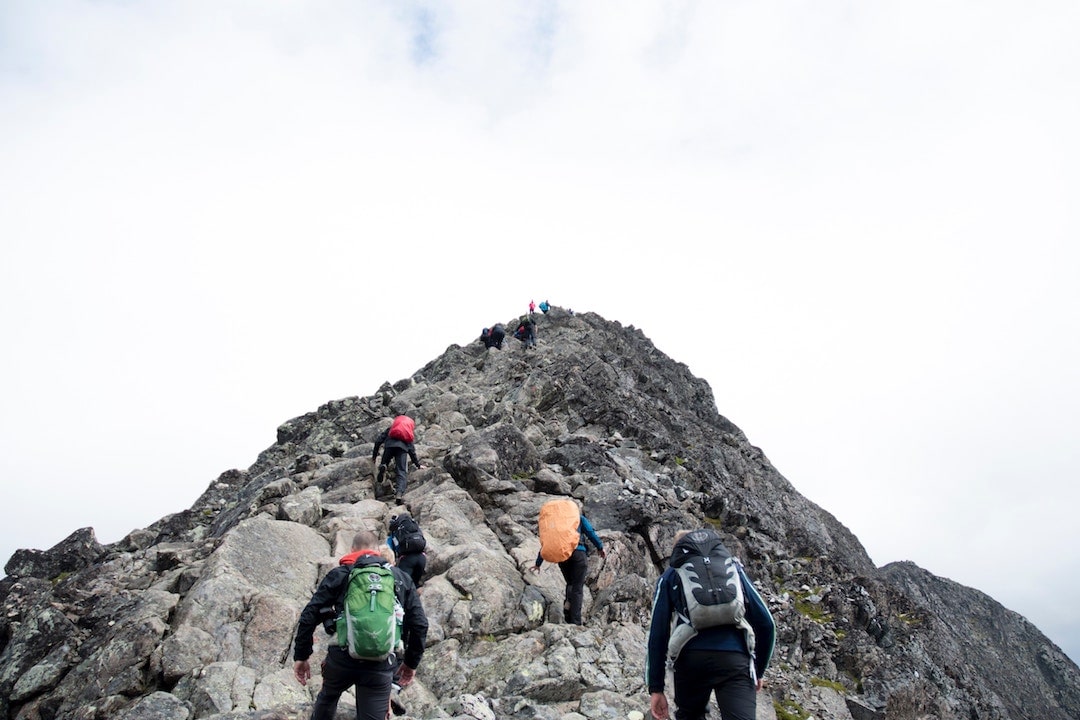
How to Become a Tour Guide

So, you want to get paid to travel the world? Being a tour guide means you get to travel while working, be the envy of all your friends, and visit dream destinations all over the globe! You’ll meet people from everywhere, wake up in a different city every other day, and truly become a citizen of the world. But do you know what you are getting yourself into, and what it takes to land one of the best jobs ever? Read on to find out how to become a tour guide!
Travel to: Europe
Important to note: Though a lot of people living on the road are referred to as tour guides, in some countries, they’re tour leaders, managers, directors… the list goes on! It’s important to know that when you’re looking for travelling job opportunities, many tour guide job advertisements will be looking for licensed city tour specialists, who unlike you will be looking to stay put in one city
See Also: Every Question You've Ever Had About Group Tours

How to become a tour guide
If you’ve decided this is the life for you, but don’t know how to go about getting your foot in the door, here’s a behind-the-scenes sneak peek into what it takes to become a tour guide!
The pros of this job can’t be counted on just one hand, but becoming tour guide doesn’t mean a permanent vacation. It’s a competitive field, and you’ll have to work hard to keep your coveted role. You need to be dedicated, but you also need to know how to have fun. You’ll live out of a suitcase, answer hundreds of questions every day, and work with many different personalities and cultures from all over the world. A tour guide is at the heart of a tour and can make or break the experience. Translation: there is no such thing a “bad day.”
Your passengers have saved long and hard to come on your tour, and you need to do everything in your power, every day, to make sure they have the trip of a lifetime (no matter how challenging it might be). You need to be patient, fierce, tenacious, and most importantly possess a genuine passion for your passengers and profession. Still up for the challenge? Here’s what you need to do next!
Step 1: Research tour operators in advance
Do your research! It’s important to find a tour operator that aligns with your interests. Are you a history lover that enjoys a relaxed pace of travel with a more mature audience? Or do you prefer non-stop adventure and fast-paced city hopping with today’s youth? No matter the operator there’s a tour style that will fit your own, it’s just a matter of doing your homework to find them. And of course, different operators will require different levels of experience and external certifications depending on where their tours travel and what type of experiences you’d be facilitating as their guide.
You should also find out how much experience you need for the tour operator you have your eye on. Some tour operators won’t require you to have any previous experience and will instead invest huge amounts of time and money in “auditioning” you. These jobs are highly sought after by many young, enthusiastic adventurers, so the stakes are high. You’ll be looking at 2-3 months without an income, travelling through potentially expensive European cities and without any guarantee you have the job until you’ve passed the finish line! Pretty soon into the process, you’ll find out if you are up to the challenge and whether you have the necessary skills, personality and expertise to make it or break it as a tour guide.

Other tour operators may have much shorter training periods, but will need you to know a lot about the region you want to work in: maybe you’ve lived there for an extended period, or speak the language, or you have a degree related to the culture or history of the region. Your speaking skills will be tested in an interview before training, and finally, some operators will look for individuals that have been guiding or tour leading for at least a couple of years before they will even consider you. If you’re starting out, wait until you’ve got some solid experience under your belt before reaching out to these companies!
All in all, it’s important to choose an operator that fits your personality and travels to destinations you feel passionate about!
Step 2: Remember that it’s both a job and a lifestyle
Living a life on the road is both a lifestyle and a job. You need to have a consistent passion for learning, relentlessly optimistic outlook and dedication to hard work. If you’re one of the lucky few that lands the job you need to be prepared to give up everything about your old life. You will be on call 24/7, your own needs will always, always, be the last priority and you’ll find yourself with little to no time to speak with your friends and family back home. If you can make peace with all of the above, then focus on crafting the perfect application, preferably one that touches on your passion for learning, relentlessly optimistic outlook and dedication to hard work.
Spend plenty of time tailoring your application letter and resume to fit the role and the company you’re applying for. Experience with travel, being able to talk about history, culture, art and much much more at a moment’s notice and charisma will help, but you also need to think about who their audience is! What can you offer this company (that thousands of other applicants can’t) to convince them they are placing their valued customers in the right hands?
Be confident in selling your skills, especially the ones essential to successfully running a tour. Highlight any professional experiences like being able to perform under pressure, working with groups, and any relevant language or academic knowledge that will help you to stand out. Give examples of past experiences and anything else that will make your application jump off the page.

Step 3: Prepare for the interview process
The interview round depends on the company’s recruitment process. It could be one meeting or a series of meetings. The tour operator wants to see if you are the right fit for them and the real deal. It’s time to convince them that you can put your money where your mouth is. Come prepared with examples in your head, and be prepared for seemingly-random questions that will test your character, initiative, and even your general know how.
Tour operators invest a huge amount in their tour guides. There are very few other jobs in the world where people work so independently of their managers’ presence from the beginning of their employment. Their brand and their customer’s experience is the most important thing to them, and they should have no doubts that you are a superstar who can do the job professionally and support their goals. Get a good night’s sleep before your interview and enter the room calm, confident, and personable.
See Also: Everything Your Tour Guide Wants You to Know Before You Travel
Step 4: Study, study, study!
You’ve been accepted to progress beyond your application submission. Now’s time to get stuck into preparing yourself to become the rookie tour guide of the year! While organisational and personal skills probably come naturally to you, no one, no matter how much they have studied, is prepared for the questions you will face while on your first tour or training trip. And if you hate studying, you may as well peace out now!
Where is the closest cash machine? What kind of tree is that? When was that building built? What’s the major industry of that little town we just passed?
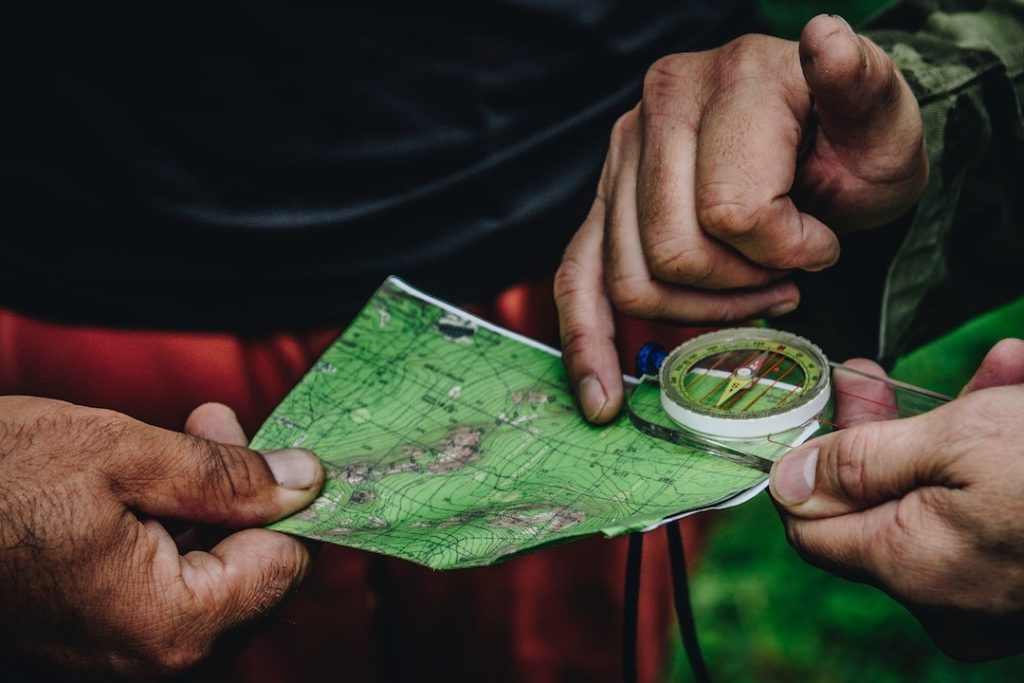
The more you know about history, culture, food, language, geography, politics, economy, and flora and fauna before heading out on your training trip, and hopefully your first tour, the better. You will never know all the answers, but you’ll learn smooth ways to own up to that, or find out and provide a helpful response shortly after (hello Google), or direct the passenger to where they might find out.
If the company you’ve applied to work with has a training trip before you embark on your first adventure with real, paying clients, they will be doing all they can to replicate every single possible tricky scenario you could come across on tour. Given that you’re applying for one of the most popular jobs in the world, it’s going to be intense, but that doesn’t mean you won’t get maximum satisfaction out of it. Making it to the end of your training is a huge accomplishment in itself. So p repare well, work hard, keep your wits about you and sleep now, because if you do become a tour guide, you can kiss more than six hours of shut-eye per night goodbye!
Step 5: Preparing for your first tour as a tour guide
You did it! You may have shed blood, sweat and tears to get here but you can finally call yourself a tour guide! It doesn’t matter if you’re new to this because everyone has to start somewhere. Celebrate the fact that you’re here because experienced touring professionals believe you have what it takes to take passengers on the trip of a lifetime. So have some confidence in yourself. Your colleagues and peers can help you when you need it but focus on the most important thing of all, your passengers! If you gain their respect and they can see you know what you’re doing, you’re well on your way to being a roaring success.
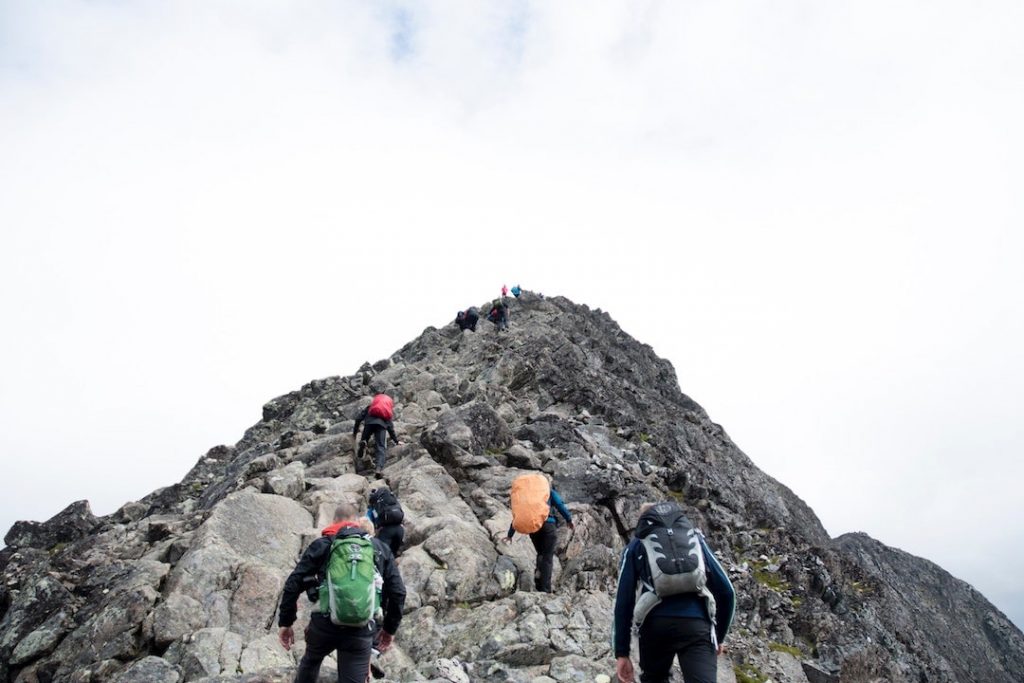
Now that you’re a tour guide, there are a few other things to keep in mind. Your life will change. This isn’t a run of the mill 9 to 5, but if you’re leading a group of tourists towards the pyramids of Giza then you already knew that! Irregular hours means keeping in touch with loved ones or having a routine isn’t easy, but standing at the foot of the world’s greatest wonders will outweigh the crazy hours and lack of routine. If you love what you do, then none of it will feel like a sacrifice, in fact, you might even say all of the above is the best feeling! Not many people can call the world their office or say their day job includes visiting incredible sights and attractions that the rest of us dream about.
Requirements to become a tour guide
Work permits and passport.
Before you begin your application, do a solid check on the work permit requirements. Are you legally able to work in the country where you’ll be touring, or is there a visa or work permit you’ll need?
Before investing your time, heart, and soul in a solid job application, make sure you’ve got the legal parts covered.
See Also: Most Difficult Countries to Get a Visa
When to apply
Most tour operators will hire in preparation for their peak season. If you’re interested in working in the Northern Hemisphere, it’s best to apply around September, as applications will usually close before the new year to have training arranged in the first months of the year.
If you want to work in a region with year-round tourism (such as South East Asia, for example), check with the company to see when they run their training trips, or when is the best time to apply. If you’re lucky, they’ll tell you they can take an application anytime!
If you’d like to work in Australia and New Zealand, applications are generally taken around mid-year in preparation for the summer. As there is more demand for tour guides in summer months in most regions, the operators hire and prepare new tour guides for the peak season. Those tour guides may then apply or request to also have some winter work.
If becoming a tour guide is for you, maybe it’s time to start doing your research on which companies you’d like to apply to! It may seem like a daunting task, but for those suited to the job, it’s a dream come true.
Have any questions about the process? Ask us in the comments below!

Finally settled down in Vienna after 9 years of leading tours in Europe, Leona first joined TourRadar in 2016. She speaks four languages and enjoys cooking authentic traditional recipes, walking in the hills around Vienna and arranging beer coasters so they're all facing the same way.
Related Articles
- Central America
- Tips & Tricks
Is Costa Rica Safe to Visit Right Now?
Costa Rica, known for its stunning beaches, lush rainforests, and abundant...
- Destination Guide
- North America
- South America
Your 4 Must-Visit Inclusive Destinations
Nothing connects people from different parts of the world and disparate...
Best Destinations for People with Disabilities
The world and its wonders should be available to one and...

The Best Halloween Parties and Events Around the World (Updated 2023)
Get unlimited access to the world's best travel stories. subscribe now., privacy overview.
- Explore Courses
- Business of Fashion
- Early Years & Montessori
- Facilities Management
- Health Science
- Special Needs Assisting
Knowledge Zone
- Corporate Training
- Meet the Team
- Success Stories
- Booking Info
- Full Time Enrolment
- Part Time Enrolment
- Protection for Learners
- Terms of Enrolment

What are the duties and responsibilities of a Tour Guide?
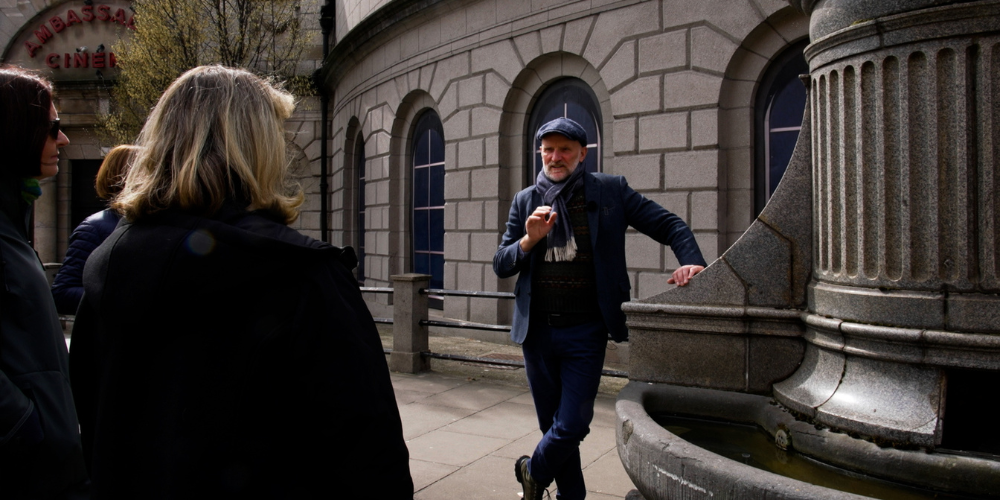
Being a tour guide is no mere profession—it's a commitment to education, a dedication to engagement, and a passion for sharing one's surroundings with the world. It's about striking the balance between historian, educator, and companion.
But what exactly does the 'job description' entail? Let's map out the adventurous landscape of a tour guide's duties and responsibilities. 1. Research, Research, Research! Before you charm your audience with tales and trivia, you've got to know your stuff. Dive deep into the history, culture, and stories of the places you're showcasing. Remember, every cobblestone might have a tale to tell. 2. Plan the Perfect Itinerary Crafting a tour is like arranging a melody. You'll decide the stops, the highlights, the duration, and the pace. Your goal? A seamless, engaging experience from start to finish. 3. Safety First As the captain of the ship, the safety and well-being of your crew (read: tourists) is paramount. This means knowing the ins and outs of your route, being prepared for emergencies, and always having a Plan B. 4. Be the Storyteller Your tourists aren't just looking for facts—they're craving stories, emotions, and memories. Weave tales that transport them through time and space. Your narrative can turn a mere statue into a legendary hero. 5. Customer Service Maestro From answering endless questions to handling the occasional hiccup, you're the go-to person for your group. It's your duty to ensure everyone feels heard, valued, and taken care of. 6. Adapt and Overcome Rain pouring down during your outdoor tour? A sudden roadblock on your planned route? A tour guide is always on their toes, ready to adapt, improvise, and ensure the show goes on. 7. Promote Local Businesses Part of your role is also to boost local commerce. Recommending that quaint café around the corner or the artisan shop down the lane not only enhances the tourist experience but also supports local communities. 8. Feedback Loop An astute tour guide values feedback. It's how you refine, improve, and elevate your tours. Encourage tourists to share their thoughts and always be open to constructive criticism. 9. Stay Updated From local events to new historical discoveries, a tour guide is always learning. It ensures your tours remain fresh, relevant, and exciting. 10. Energy, Enthusiasm, Empathy Last, but by no means least, a tour guide is the embodiment of energy and enthusiasm, combined with the empathy to understand and cater to diverse tourists.
Read More: What are the essential skills for tour guides? Being a tour guide isn't just about knowing the way; it's about paving the way for unforgettable experiences.
It's a role that blends research, storytelling, management, and sheer passion. So, if you've got a penchant for history, a flair for drama, and a heart that loves to meet new people, you're on the right path. Adventure awaits!
Read More: Discover Tour Guiding as a Profession: A World Full of Travel, Joy and Endless Opportunities
Portobello Institute's QQI Level 6 Tour Guide course allows you to train and qualify as a national tourist guide.
If you are interested in choosing the course for the career you want, you can book a consultation call with our expert Travel & Tourism advisor Brandon McLean, email [email protected] or call 01 892 0035.
You may also like...

Why Tour Guiding is a Great Retirement and/or Semi-Retirement Option
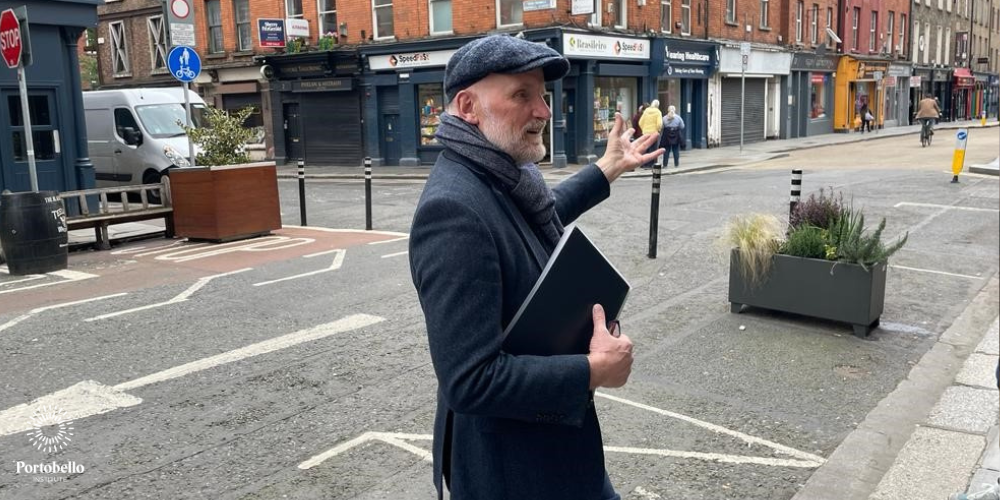
What are the Earning Capabilities and Career Growth for Tour Guides?

What Are The Different Types Of Tour Guide?
Portobello insider.
Join our mailing list to receive the latest insights and exclusive content from your chosen department of interest
© 2020 Portobello Institute | Powered by Wurkhouse
National Trust for Historic Preservation: Return to home page
Site navigation, america's 11 most endangered historic places.
This annual list raises awareness about the threats facing some of the nation's greatest treasures.
Join The National Trust
Your support is critical to ensuring our success in protecting America's places that matter for future generations.
Take Action Today
Tell lawmakers and decision makers that our nation's historic places matter.
Save Places
- PastForward National Preservation Conference
- Preservation Leadership Forum
- Grant Programs
- National Preservation Awards
- National Trust Historic Sites
Explore this remarkable collection of historic sites online.
Places Near You
Discover historic places across the nation and close to home.
Preservation Magazine & More
Read stories of people saving places, as featured in our award-winning magazine and on our website.
Explore Places
- Distinctive Destinations
- Historic Hotels of America
- National Trust Tours
- Preservation Magazine
Saving America’s Historic Sites
Discover how these unique places connect Americans to their past—and to each other.
Telling the Full American Story
Explore the diverse pasts that weave our multicultural nation together.
Building Stronger Communities
Learn how historic preservation can unlock your community's potential.
Investing in Preservation’s Future
Take a look at all the ways we're growing the field to save places.
About Saving Places
- About the National Trust
- African American Cultural Heritage Action Fund
- Where Women Made History
- National Fund for Sacred Places
- Main Street America
- Historic Tax Credits
Support the National Trust Today
Make a vibrant future possible for our nation's most important places.
Leave A Legacy
Protect the past by remembering the National Trust in your will or estate plan.
Support Preservation As You Shop, Travel, and Play
Discover the easy ways you can incorporate preservation into your everyday life—and support a terrific cause as you go.
Support Us Today
- Gift Memberships
- Planned Giving
- Leadership Giving
- Monthly Giving
10 Tips for Being a Good Tour Guide
- More: Preservation Tips and Tools
- By: Emily Potter
In the spring of 2013, when a hint of warmer weather got us ready to think about being outside, we put together a toolkit with ideas to help you organize a tour in your community . But don’t let the current chilly winter season stop you from giving―or going on―tours.
Instead, use these 10 tips, compiled by Johns Hopkins, Executive Director of Baltimore Heritage , to help you be the best tour guide you can be. (Not a tour guide? These tips can also give you insight into being a good tour goer.)
1. Face the crowd, not what you’re talking about. Tour guides often get so wrapped up in their subject they forget to face the people they are addressing. One secret to avoid this is to designate somebody in the crowd to interrupt you if they can’t hear you.
2. Be personal. No matter how much we love buildings, it’s a fact that people connect with people. So it’s good to have a few personal anecdotes ready, even if they’re just about past tours you've done. You’ll build a more personal connection to your group and create a memorable tour.
3. Tell a story (historical or contemporary). Make sure you have a few fun and compelling stories to tell about the buildings and sites you’re looking at. People are more likely to feel engaged when they are listening to a story, rather than a list of dates and names.

photo by: Marcin Wichary, Flickr
Tell a story, share your passion, get your tour group engaged in the places and sites you're excited about.
4. Get moving right away. Tours often get bogged down before they ever begin with tour guides doing the “big wind-up”―introductions, setting the theme, providing context, etc. Plan to scrap 90% of it.
Hint: If you have a script, the first line should tell you: “Move thirty feet up the street before you say anything.”
5. Don’t worry about being perfect. People don’t expect you to be perfect. Set the stage for human imperfection by acknowledging that people who may know more than you should speak up and share their knowledge with the group. The more interactive the tour is, the better!
6. Get help to get organized. Try to get a volunteer to check people in so you can chat with tour goers. People give tours for many reasons, but a big one is to meet new people, and the time before the tour is a great chance to get to know your group.
Hint: If you don’t have a volunteer beforehand, ask somebody on the spot. (They’ll love it!)
Stay connected with us via email. Sign up today.
Sign up for email updates, sign up for email updates email address.
7. End on time. (Or try very hard to.) Try like crazy to end on time. Nobody wants to feel like they are in tour jail. Tours on paper always seem too short and on the ground are always too long. Two hours is the absolute maximum. An hour to an hour and a half is better.
8. Limit your number of speakers. It’s hard to talk for just five minutes, so when you have multiple guides talking about different subject areas, it’s easy to lose track of time. Avoid it if you can, but, if you do have several different guides with you, designate one as the lead guide and the others as experts in a specific area.
9. Send a follow-up email. Follow up with an email―it can be as simple as a “thank you” note. If you can follow the tour with another contact, by email or otherwise, that’s another step towards creating a better link between the tour taker and your organization.
10. Avoid these traps:
- “12 (or 20…) people on the tour is the max.” Rather, let the space and tour guide set the scene.
- “You MUST plan everything out ahead of time.” In fact, a little spontaneity is good.
- “Don’t do outdoor tours in the winter.” People will still come, even in the snow.
- “Always have a backup plan in case it rains.” Don’t worry, people will come out in the rain, and it’s much easier than rescheduling.
A version of this story was published on 1/5/2016.
Donate Today to Help Save the Places Where Our History Happened.
Donate to the National Trust for Historic Preservation today and you'll help preserve places that tell our stories, reflect our culture, and shape our shared American experience.
Like this story? Then you’ll love our emails. Sign up today.
Related Stories

The Mother Road turns 100 years old in 2026—share your Route 66 story to celebrate the Centennial. Together, we’ll tell the full American story of Route 66!

- Tourism Best Practices
How To Be A Better Tour Guide

As a tour guide, you are a part of the hospitality and customer service industry and we know it isn’t always easy. We’ve all heard the horror stories; demanding clients, late arrivals, unsatisfied customers, and troublemakers.
We wanted to help you out, so we’ve come up with a useful guide that will help you deal with “eccentric” customers and, overall, be a successful tour guide.

Don’t Just Be a Good Tour Guide, Be a Great Tour Guide
There are thousands of good tour guides out there, but don’t just be ordinary, be extraordinary! Learn what the difference is between a good tour guide and great tour guide.
1. Introduction
A Good Tour Guide: Introduces themselves, welcomes you to the tour, and gives a brief breakdown of the schedule.
A Great Tour Guide: Gets to know their tour group.
Action Step: Ask where your group is from, why they’re visiting, and what their interests are.
Get the group to get to know each other
Action Step: Play a game of Elimination Rock, Paper, Scissors, where you get everyone to pick someone to play against. The loser stops playing while the winner continues to play with another winner until their are only two people left. This is a great way to break the ice in a short time, without too much small talk. Maybe even think of a small prize to award the winner.

2. Sight-Seeing
A Good Tour Guide: Shows his/her group all the sights on the tour.
A Great Tour Guide: Maximizes enjoyment on the tour
Action Step: Do some research to map out when the best sights will be the least crowded.
Listens to what his/her group wants
Action Step: At the request of one of your group members, show any additional sights that they want to see.
Recommend the best places to eat, shop, and buy souvenirs
Action Step: Recommend the best places to eat shop and buy souvenirs. Don’t base your recommendation off of a commission you may receive from a store. Travellers have a good sense for when they are being pushed into a retail situation that benefits the guide. Emphasize quality and experience.
3. Time Management
A Good Tour Guide: Will make sure that you stick to the schedule and see all the sights on time.
A Great Tour Guide: Is Flexible
Action Step: Be aware of the start and end time of the tour but if your customers are enjoying a particular sight, let them stay a while.
Doesn’t Rush
Action Step: Don’t rush your customers, remind yourself that you are on their time.
4. Commentary
A Good Tour Guide: Gives a basic historical and cultural background of the sights.
A Great Tour Guide: Is a story teller
Action Step: Be passionate about your story telling – Use arm gestures, a high speaking volume, and facial expressions.
Watch this video on how to be a great story teller
Integrates personal anecdotes
Action Step: Tell your group your personal thoughts on the good, the bad, and the ugly of your city – trust me, they’ll laugh!
5. Local Knowledge
A Good Tour Guide: Is familiar with the city and/or country of the tour.
A Great Tour Guide: Is a traveller
Action Step: Include stories from your own traveling adventures.
Really understands the city and/or country they are guiding
Action Step: Highlight the uniqueness of the city and/or country compared to other cities and countries.
6.Conclusion

A Good Tour Guide: Says his/her closing remarks and thanks you for coming.
A Great Tour Guide: Cares about the rest of his/her group’s trip
Action Step: Reccomend other sights, restaurants, etc. that you didn’t get to show them on the tour.
So there you have it- the difference between a good tour guide and a great tour guide.
Another factor of how to be a great tour guide is how you deal with difficult customers.
How to deal with customer complaints and late guests – two very common occurrences on tours.
How To Deal With Complaints
Working as a tour guide in the hospitality industry means that the customer is always right, even if they’re wrong.
Learn how to deal with customer complaints as democratically as possible with these tips and tricks.
Run a Great Tour
Instead of putting out fires, prevent them! Right from the start, be a professional, organized, and fair tour guide. Don’t give your customers anything to complain about!
Be Clear About Your Complaint Policy
During the introduction of your tour, be clear about your complaint policy.
- That you will do your best to make everyone on the tour happy.
- That you are willing to hear what everyone has to say.
- That you will respond as quickly and fairly as possible to the complaint.
- The procedure the guest has to follow to file a complaint.
- How you and your team will respond to the complaint.

Be Professional
Since it can be difficult to deal with angry guests, train your staff ahead of time so that they are familiar with the procedure on how to deal with complaints.
Here are a few good rules of thumb to follow:
- Respond quickly: The guest will want to feel like you heard them and that you care about their complaint. Dealing with the complaint quickly also means the customer is less likely to post their complaint on a site like TripAdvisor.
- Show your guest that you are listening: Use your body language to show the guest that you are actively listening to their complaint – Nod your head, keep eye contact, and verbalize that you understand.
- Thank your guest: Thank your tour guests for raising their concerns.
- Be patient, calm and empathetic: The guest may be acting unreasonable, but that doesn’t mean that you should too – If you remain patient, calm and empathetic then they will likely mimic your approach.
- Verbalize how you will manage the complaint: Letting the guest know what your plan is to manage the complaint will make them feel satisfied. Breakdown what happens next and when.
- Involve your guest in the solution: Ask them if there is anything that they would like you to do to solve the problem.
- Update your guest on the status of their complaint: Let your guest know that you haven’t forgotten about them and where their complaint is in the filing process.
Send a follow-up email asking your guest how they are doing – If necessary, send a discount or promotional offer.
Remember that your reputation is on the line and unhappy customers will likely share their tour experience – So deal with complaints as best as you can!
Another difficult situation that can arise when running tours is late guests.
How To Deal With Late Guests
Organizing a large group of customers comes with a set of challenges – late guests being one of them.
Learn how to deal with late guests with these 5 tips and tricks!
Set Precedent
Set a time that the tour starts and make sure the tour actually starts at that time – As the tour guide you should be there about 15 minutes early to prepare anyways.
Being at the start location on time and starting on time shows your guests that you are taking your job and the tour seriously.
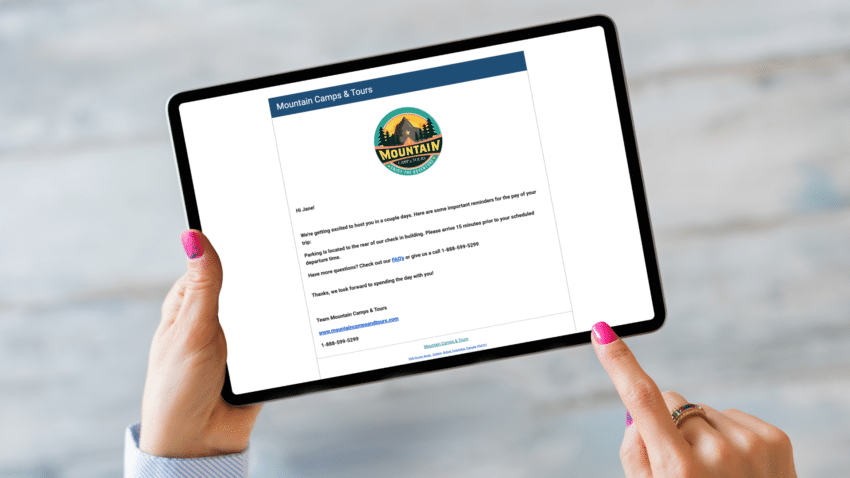
Set Reminders
Communicate as much as possible with your guests – Along with the tour’s itinerary, send text or email reminders 3-4 hours before the tour reminding your guests of the time and the location.
Be Strategic
Choose a strategic location for the start of the tour – Choosing a place that is difficult to find will increase the likelihood of late guests.
Send a map with a clearly marked route to the start location.
Be Prepared
Prepare a system for your late guests – Let them know where they can reach you or the tour office to find out your next location
Or send them the times and locations of all the spots on the tour so that they can meet you there.
If there is a crucial time and place that all the guests must be – for example, if the van leaves at 8:30 sharp, be clear and emphasize this point!
Remind them a few times that if they aren’t there on time, they will be left behind, but in the nicest way possible, of course.
Check out these 5 resources that can help you be an even better tour guide .

Written By | Rezgo
Rezgo helps experience providers grow their businesses with flexible online booking tools and personalized support. Focus on what you love and let us take care of the rest.
Previous Article Social Media Cheat Sheet
Next Article 11 Extra Tips to Be a Better Guide
Related Posts

Articles , Increase Online Bookings , Marketing Strategies
Your marketing mix: the 7 ps of travel and tourism marketing.

Articles , Increase Online Bookings , Tourism Trends
17 innovative tourism business ideas and trends for 2024.

Articles , Increase Online Bookings , Tourism Best Practices
Advantages and disadvantages of online travel agencies (otas), search the blog.
- All Categories
Most Popular Articles
- 17 Innovative Tourism Business Ideas and Trends for 2024 123 views
- Advantages and Disadvantages of Online Travel Agencies (OTAs) 66 views
- Your Marketing Mix: the 7 Ps of Travel and Tourism Marketing 55 views
- How to Create and Promote Amazing Tour Packages 17 views
- How to Create a Business Plan for Your Tour or Travel Company 16 views
I have read and agree to the Rezgo Privacy Policy
GET STARTED
Sign-up for a free demo.
Lorem ipsum dolor sit amet, consectetur adipiscing elit, sed do eiusmo tempor incididunt ut labore et dolore magna aliqua.
Schedule A Demo
- EXPLORE Random Article
How to Become a Tour Guide
Last Updated: August 6, 2023 Approved
This article was co-authored by Angela Rice . Angela Rice is a Luxury Travel Specialist and Co-Founder of Boutique Travel Advisors, a luxury travel advising business in Phoenix, Arizona. Angela specializes in consulting and curating highly customized and unique travel itineraries for clients seeking luxury, group, and multi-generational family travel. Angela studied at Arizona State University and The University of Iowa Tippie College of Business. She has prior consulting experience in accounting and business, which helps her run her business behind the scenes. Angela has been featured in The Washington Post, Reader's Digest, Travel Weekly, USA Today, Travel Market Report, Phoenix Magazine, and MSN. She is also a frequent guest on WBBM News Radio 105.9 FM's Travel Tuesday show. There are 7 references cited in this article, which can be found at the bottom of the page. wikiHow marks an article as reader-approved once it receives enough positive feedback. In this case, several readers have written to tell us that this article was helpful to them, earning it our reader-approved status. This article has been viewed 536,653 times.
Being a tour guide can be a great career option for people who love to travel, enjoy being in front of a crowd, and are masters of multitasking. If that’s you, then start looking for job opportunities online and in your area. You can improve your chances of getting hired by becoming professionally certified or getting a degree. Once you’ve found a job, be ready to meet the challenges of this fun and unique but sometimes hectic position.
Looking for Opportunities

- To get started, enter something like “Be a tour guide on a cruise ship to the Caribbean” into your favorite search engine. You can then browse through tour guiding jobs with different companies, job requirements, and salaries.

- You may need to space these tours out, as some could get expensive. Budget in one tour every two weeks or so. While you’re looking for jobs, go on tours instead of going out to eat or doing other fun activities.
- Invite friends and family to take tours with you. They’ll be able to share their likes and dislikes with you, which will help you be a better guide once you find a job.

- For more information and to find a list of associations located around the world, visit: http://www.beabetterguide.com/tour-guide-associations/ .

- Be aware that travel agents may tell you they love a certain company if the two are in a partnership together, even if they know the company has some issues. Be sure to do your own research by going online or visiting the company’s offices.

- You can also look online to see if the companies have open jobs, as many will list these positions on their websites.
- If you’re hoping to become a tour guide to travel, this might not be your favorite option. Remember that doing work locally can help you build your resume and gain experience while staying in your comfort zone. You can always keep looking for travel-oriented jobs while you’re working!
Getting Hired

- You can also look online to find details about the test, study guides, and registration information. Enter something like “Professional licensing examination for sightseeing guides in New York City” to find everything you need to prepare for and take the test.
- Take the exam seriously. If you fail, you’ll need to pay the fee again!

- Be sure to register for courses meant for tour guides rather than tour directors. Tour directors are responsible for logistics and management, while guides lead groups and provide narration about places the group visits.
- These programs are great for meeting people in the field. Your teachers, in particular, could connect you with people they know are looking for guides.

- Be sure you have the time and money to dedicate to the classes. If you’re currently working a full-time job, look into taking night classes.

- Most reputable companies will run a background check before hiring you.
- If they like your application, most companies will contact you for one to two follow-up interviews before hiring you.

- These questions could be things like, “What would you do if the bus broke down?” or “What makes you excited to be a tour guide with us?”

Meeting the Challenges

- You may want to schedule alone time during your days off to balance out your work schedule.

- Attendees will ask you questions that may be slightly off-topic. Knowing these answers will impress your audience and make you a better guide.
- If you don’t know the answer to a question, say so. Tell your audience you’re not sure, but that you’d love to know the answer and will be looking for it as soon as you can.

- You can always contact your company for assistance in these situations, but you’ll need to keep a cool head. You’re the leader of the group when you’re out on a tour, and they’ll look to you for guidance.

- This might be hard if you’re leading groups in beautiful and relaxing locations, but stay strong! You’re getting paid for this work.

- You also need to make sure that you and your group respects the environment you’re visiting. You’ll be responsible for enforcing the rules.
- Always face your audience when giving tours. [14] X Research source
Community Q&A
- If you are looking for a job in a country that has an official language you do not speak, you should learn the language by signing up for a course or using language learning software. Thanks Helpful 0 Not Helpful 0
- Take a training course on first aid and CPR. Depending on the job you land, this may not be necessary, but as a tour guide, you will need to know what to do in emergency situations. It’ll also look good on your resume. Thanks Helpful 0 Not Helpful 0
- Be aware that while you may be working in a vacation spot, you are not on vacation yourself. The majority of your time will be spent working. Thanks Helpful 40 Not Helpful 9
- As a tour guide, you may be working long hours. Your job may be in an exciting location, but you must make sure you are capable of working a difficult schedule. Thanks Helpful 5 Not Helpful 0
- Be aware that many tour guide jobs are seasonal. This may mean you will not have consistent work in one location. However, if you don't mind traveling, you can always travel back and forth between hemispheres. Thanks Helpful 0 Not Helpful 0
You Might Also Like

- ↑ http://www.academicinvest.com/arts-careers/linguistics-careers/how-to-become-a-tour-guide
- ↑ https://www.monster.com/career-advice/article/how-to-become-a-tour-guide
- ↑ http://www.beabetterguide.com/tour-guide-associations/
- ↑ http://intelligenttravel.nationalgeographic.com/2013/01/22/so-you-want-to-be-a-tour-guide-afitz/
- ↑ http://www.besthospitalitydegrees.com/how-to-become-a-tour-guide/
- ↑ http://learn.org/articles/How_Can_I_Become_a_Professional_Tour_Guide.html
- ↑ https://savingplaces.org/stories/10-tuesday-tips-good-tour-guide#.WV-TudPytol
About this article

If you want to become a tour guide, you should research opportunities in your area by searching online and visiting attractions where you might want to work. Depending on your city, you may need to pass an exam, so check out tour guide associations’ websites and search online to see if there are licensure requirements. If you can, take classes relevant to your field or class, or even pursue a degree in hospitality and tourism. If you can't go to school, apply to tour guide jobs that provide training. For more information about the application process and what you can expect as a tour guide, read on! Did this summary help you? Yes No

Reader Success Stories
Adrian Curea
Oct 30, 2017
Did this article help you?
Mahendra Jasani
Nov 13, 2017
Elizabeth Woughter
Aug 15, 2017
Kamlesh Kumar
Dec 10, 2016
Jitendra Singh
Jan 20, 2017

- About wikiHow
- Terms of Use
- Privacy Policy
- Do Not Sell or Share My Info
- Not Selling Info
What are the golden rules of tour guiding? 10 tips to help you shine
By Erick Tomaliwan
Share this article:
- Facebook icon
- LinkedIn icon
- Twitter icon

Most tour and activity providers find themselves embracing a career in the travel industry through an appreciation for certain cultures or destinations. But to be successful in this role, you need to know which tour guide rules to keep in mind.
As a tour guide, you have a profound impact on how a guest interacts with their surroundings. And you also have the power to offer guests a life-changing experience through your charm and wit.
Sure, you don’t have to become the expert on the komodo dragon or shark mating rituals, but does it hurt to have a few fun facts at the ready?
Nope!
Ultimately, a skilled tour guide will know when to turn up the charm and dial the facts back to match the bandwidth of their audience. And as a tour guideline, you should adjust your performance based on the feedback and social cues you receive from your audience.
TL; DR: To be a fantastic tour guide, you should be full of enthusiasm, knowledge and kindness.
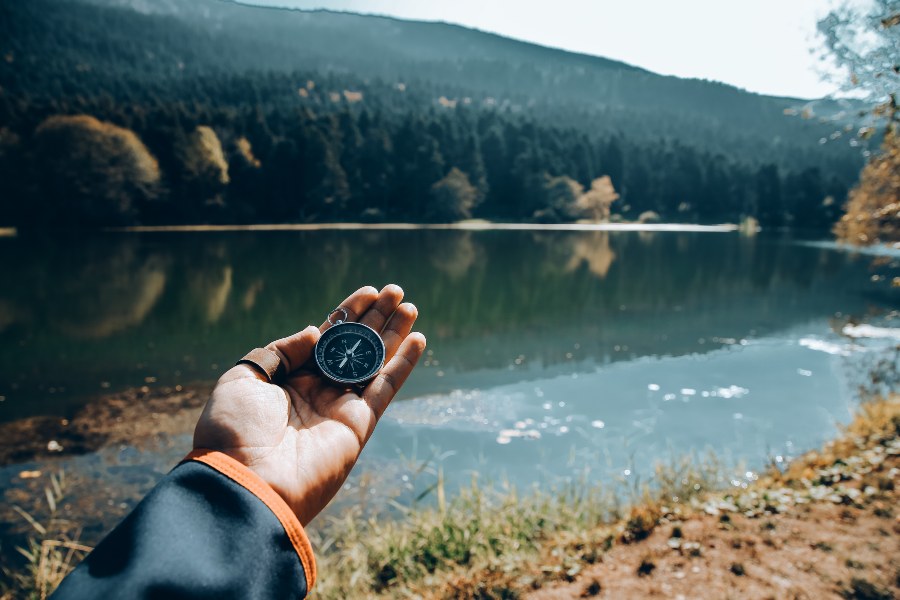
What are the golden rules of tour guiding
For many, guiding tours is an ideal way to see the world while getting paid to travel.
However, the role of a tour guide can be highly impactful, if you focus on making it fun and entertaining. Not only do you have endless opportunities to meet fascinating people from all over the globe, but you’ll never stop learning.
It makes sense that some of the best tour guides are hungry to connect with new people and enjoy reciting fun facts about what makes a place special. And whether you’re a pro or just starting out, it helps to know which tour guidelines to follow.
1. Be present, punctual and full of personality
There are few things worse than a tour guide who isn’t engaging, especially when guests arrive with high expectations. Show a vested interest in your guests during the first meeting — especially if you have a few early bird arrivals.
And since this role is equal parts education and entertainment, people with big personalities tend to do well as tour guides. This is a credit to having the ability to add a little extra zest to an experience.
Personalize the experience
The reason why people still book live tours is that in-person delivery is better than reading a guidebook. Ultimately, you have the power to transform an ordinary encounter into something more memorable. To do this, you’ll want to become a storyteller.
Do you know what’s worse than being a tour guide without a funny bone? Being hard to hear! If guests are straining to follow what you’re saying, they’ll likely tune you out.
And, even better if you can drum up fodder that travelers will not be able to find in a guidebook. Whether it’s because it’s new, insider knowledge or off-the-cuff — fun facts can send your guests into a fit of laughter and keep them engaged.
2. Know your stuff — as a tour guide rule
What do travelers often rave with tour guides? Approachability and good candour tend to show up in 5-star reviews, highlighting how a good attitude goes a long way.
You’ll need to stay up-to-date on the subject matter because guests are going to expect you to have all of the answers. With that said, you do not need to fib if you receive a curveball question. Instead, invite the audience to chime in if they have an answer or commit to finding out and responding at a later time.
Still, no matter how much you prepare, some travelers will throw some quizzical questions your way. Lean into your ability to charm and dazzle people with your local knowledge to escape these encounters unfazed.
Take time to prepare
Understandably, tour guides should have all of their ducks in a row once the tour starts. Dedicate time to doing a dry-run of your tours in advance to avoid potential hiccups that might pop up en route.
Typically, guides know where they are going, have a good sense of direction, anticipate when local restaurants and popular landmarks will be open and busy while also gauging optimal times for travel overall.
3. Engage with guests while sharing tour guidelines
Get to know your guests by striking up a conversation. There’s something known as the “third thing”. I learned about it from a brilliant architect friend who shared that wherever two people can find an item or topic they are familiar with, it helps to strike up a conversation.
In reviews, tour guides who are engaging and entertaining receive high praise. We know that becoming a 5-star tour guide takes work, but the added effort will pay off through reviews and word-of-mouth referrals.
Becoming a skilled communicator
Guests want a tour guide is confident and fun to be around. You’ll want to conduct the tour at a pace and tone that’s easy to follow. What does this sound like?
Use inclusive language to make guests feel welcome. The best way to brush up on your communication skills is to use them on a regular basis. Invite discussion and provide context for your guests to ask questions.
4. Offer helpful and timely insight
When leading a tour group, you’ll likely be commenting on things you’ve seen many times before. Imagine yourself in the shoes of a traveler.
So while you may find yourself constantly searching for new ways to talk about the same thing, it’s the first time for many — if not all — of your guests. When you share stories or recite unconventional facts, small details like these kick the experience up a notch.
Try changing up your route or focusing on different sensory receptors to offer fresh and fun ways of re-visiting the same places.
You want to create an inclusive guided experience that welcomes all types of travelers — including kids, visitors with mobility challenges and slower-paced adventurers.

5. Address guests and answer questions
Some travelers might initially be nervous to ask you questions because they will yet to have a rapport with you.
Think about common questions guests have and aim to proactively address them with your guests. And determine which facts you believe will be most advantageous for guests to know, then share them — openly.
To combat this, position yourself as a friendly and approachable guide who’s here to do just that — guide their experience. Reiterate how the tour is theirs alone, but your role is to facilitate the best experience possible.
Speak loud and proud
Annunciate. Broadcast. Project. This is not a time to use your library voice. I mean, there’s a balance, but aim to be vocal enough that passersby find themselves eavesdropping on what you’re sharing.
An added benefit is if your tour heads somewhere quiet, guests will be tuned in to your voice and more likely to lean in if you’ve been using inflection to command their attention.
Aim to be full of charisma
While hard to define — charisma is a core element of becoming a successful tour guide.
It can be summarized as one part charm, one part knowledge and one part wit with a dash of humour for good measure.
6. Demonstrate good time-management and organizational skills
Leading by example is one of the most effective ways of gaining the trust of your audience. Sure, you’ll probably contend with a few latecomers on tours — but don’t let this derail the entire group.
For visitors arriving at a new location, they tend to have a lot of questions. On your tour, aim to proactively answer them and allow space to respond to your curious followers.
To better frame the experience, give your tour a dry-run. Without the pressure of a tour group, you can see when certain dining spots, viewpoints or transportation routes will be busy, and adjust your plans to maximize the visitor experience.
7. Infuse storytelling as part of your tour guide rules
There are plenty of advantages to becoming a skilled storyteller. First, as travelers, we thrive on stories. They help to forge new neural pathways and turn ordinary encounters into something more relatable.
And second, while it can feel intimidating to share personal anecdotes and memories, storytelling elevates the tour for your guests. Plus, you can ad lib and you’ll have guests who are none the wiser.
Peter Syme shares something called the Peak Design Rule , where he suggests tour guides identify elements throughout your tour that is most helpful, entertaining and valuable, and design your tour around that.
Travelers develop a greater capacity to recount their adventures in a favourable light with personalized tours.
8. Keep things moving
When you step into the role of tour guide, you assume the responsibility of educator and entertainer .
There will be times when you have a restless audience member or guests that tune you out. Don’t panic — instead, aim to keep a consistent pace throughout your tour.
Account for buffer time throughout your route, giving consideration to guests of all ages and mobilities. And once a tour begins — keep that trust going by letting visitors know what to expect next and offering reasons behind each stop you have planned along the route.
9. Offer breaks
If you’re leading a scenic tour, note a few stopping points en route where guests can expect to have a few minutes to snap photos and take in the view. Allow ample time for breaks while on tour. They allow guests to feel refreshed and ready for the next stop on the tour.
In addition, short pauses help guests rest up, so they have the capacity to mentally digest more information.
Bring some snacks along
Instead of waiting until the eleventh hour to lead your guests to a dining location, bring snacks and water as a safety mechanism. This is especially useful for guests traveling with young children. And while it’s not expected, it can absolutely save the day for a family who just needs a little extra support.
Food can act as a bridge between cultures. You’ve probably heard the term “hangry” or been on the receiving end of a guest who’s coping with low blood sugar.
Ultimately, you’ll have some guests who are keen to see the next vantage point and a handful of tour guests that are more inclined to take their time meandering along the route.
10. Start and end tours on time
There will always be guests who misgauge timing or location and show up late to a tour. And while travelers might visit a location for the first time and find themselves running behind, this should not take away from your fellow guests who arrived on time.
One thing you should have control over is whether your tour or activity ends on time. Instill a walking pace that accounts for little ones and more mature travelers, by building in some buffer into your schedule.
This way you can feel good about pausing to talk more in depth throughout your tour.
Research proves people tend to remember negative experiences more readily than positive encounters. It could be that guests are hardwired to weigh bad encounters differently than positive ones, but it’s also a way of keeping them safe from repeating the same mistake in the future.
Helpful tour guide rules to keep in mind
Ideally, you want to create opportunities for guests to feel included and listened to throughout your tour. If it works for your style, ask questions in advance and help them to feel involved in the experience.
But, one thing to keep in mind is that your job isn’t done when the tour ends — you’ll want to bookend the tour for guests with options for learning more along with prompts for a review.
- Guests don’t know what you know — overshare information to keep visitors in the loop
- Include a safety overview whether it’s related to gear, the location or the route
- Provide guidelines for what to expect and how they can expect to interact with you/others
- Let guests know where to find washrooms en route
- Build in buffer timing in case guests are late
As a general tour guide rule, the greater amount a guest pays, the more they will expect from the lead tour guide. You may find that tipping is activity and location-dependant.
But with guests visiting from all over the world, make sure you share how tips indicate that you’ve done a great job and while not required, are greatly appreciated.
Set a tone of curiosity, competency and confidence early on. This way, travelers arriving bright-eyed and bushy-tailed — will be ready to trust you to show them the world.
Want to become a top-notch tour guide?

Subscribe to the Checkfront Newsletter
Read new tips on how to get more bookings every month.
Related Articles

Defining your value proposition: standing out against the competition
You’re not the only one vying for the attention of your ideal customers Demand for epic experiences is growing —…
- Business Tips
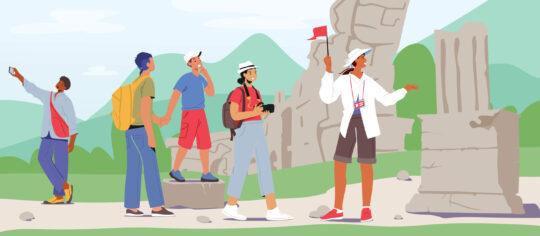
How to start a Tour Operator business in 2024: A step-by-step guide
Dreaming of running a successful tour company? Check out these strategies!
Search Blog
Subscribe to our newsletter.
Get tips and strategies to grow your business and impress your guests.
Blog Categories
- Booking Management
- Guest Experience
- Marketing Strategies
- Operator Highlights
National Geographic content straight to your inbox—sign up for our popular newsletters here

- INTELLIGENT TRAVEL
So You Want to Be a Tour Guide
Here's how to travel for a living.
When people say “I wish I could travel for a living!” I start talking about the sheer number of opportunities out there.
Before settling into travel blogging and journalism (I’m actually using my college major!), I spent some time as an international tour director and guide, learning firsthand what goes into leading groups of people through some of the world’s most famous sights. It can be a dream job if you know what you’re getting into. I felt like I earned my master’s degree in European history from everything I learned, and often served as a makeshift therapist for travelers. We’d even come up with nicknames, like “QNE” for Questions Never End.
The truth is there’s no one way to go about landing your dream job. But it does help to pick as many brains as possible.
I sat down and chatted with Carrie Fitchett , a sought-after tour director working with Educational Travel Adventures , about what to know if you’re thinking about pursuing her line of work. “When I researched jobs that said ‘TRAVEL FOR A LIVING!,’ they were all things where people go, stay in the hotel, drink bad coffee all day, and wear heels,” she said. “I didn’t want to do that or sit in an office with a headset and sell places I’ve never been to. That’s why this job made sense,” she said.
Know the Lingo: Tour Director vs. Tour Guide A tour director is the one responsible for logistics, confirmations, planning, damage control, and group dynamics. They also give commentary on history and culture. A tour guide gives specific narration in a place, often joining the tour group for just a couple of hours. If you want to dip into this world, local guiding is great, and perfect if you want to go home each night. There is also long-term contract work available on cruises, from big ships to smaller river cruises.
Know the Pros If you’re in a rut at your current job, here’s a chance to do something different each and every day. This is a job that can take you all over the world to events like the Olympics and the World Cup . “It’s the ridiculous things I get to do every single day — whether it’s museums, shows, or eating dinner in the Eiffel Tower — but it’s also the dynamic of people,” Fitchett said. “When someone waits their whole life to go to Paris, I get to take them. It’s the look on their face as they experience it for the first time, and I’m a part of that memory.”
Know the Cons Most tour directors are freelance, which brings its own set of challenges, like needing independent health insurance and struggling to cobble together enough work — especially at the beginning. You’ll also be getting very little sleep when you’re confirming the next day’s activities and studying commentary. “True colors come out on tour,” Fitchett said. “Sometimes people are ungrateful or bossy or think they know more about a place than you…But even if I think it’s the silliest question I’ve ever heard in my life, I have to answer it so they feel good about it.” Scheduling may keep you away from home for weeks or month at a time, so you might have to skip important events, like weddings or funerals.
Consider Training The International Tour Management Institute (ITMI) is a well-known guide program, offering two-week trainings in San Francisco and an annual symposium to connect tour companies with guides. The high price tag (around $3,500 for tuition) doesn’t include housing or meals, but the pay off can be well worth it. “The money will come back to you in your first couple of tours,” Fitchett said. “Plus, I made amazing friends and priceless contacts.” There is also the International Guide Academy in Colorado, as well as many online options.
Adults vs. Students Most tour directors choose to work a mix of adult and student tours. Student tours provide a way to make money in the spring in places like Boston, New York, and D.C., when adult tours run less frequently. Adult tours, usually clustered in summer and fall, can take you all over the world. But there’s a difference: “With kids, you affect and change lives. Maybe they’ve never traveled and you show them what’s out there,” Fitchett said. On the other hand,with adults, “the whole trip is more chill, but in the downtime you might be freaking out over what question they’ll ask next.”
- Nat Geo Expeditions
Going Off Road You may burn out or get tired of always being on the road. That doesn’t mean your career in the tour business is over. There are behind-the-scenes roles to be played at tour companies — like developing product, which involves choosing the right hotel, transportation, and activity partners, as well as sales, event planning, and social media.
Bottom Line: Is It Right for You? “For this job, you have to love every part of travel, and know you will be living out of a suitcase and never sleeping,” Fitchett said. “But I absolutely love what I do, and I don’t need the stability right now.” But, like anything, timing is everything. “In the meantime, love the job you have!” she said. “Try a class, start locally, and talk to as many people as possible who have done it or are doing it.”
Annie Fitzsimmons is Intelligent Travel’s Urban Insider , giving you the dish on the best things to see and do in cities all over the world. Follow her travels on Twitter @anniefitz .
Related Topics
- PEOPLE AND CULTURE
- EDUCATIONAL TRAVEL
Fuel their curiosity with your gift
- Perpetual Planet
- Environment
History & Culture
- History & Culture
- History Magazine
- Race in America
- Mind, Body, Wonder
- Destination Guide
- Paid Content
- Adventures Everywhere
- Terms of Use
- Privacy Policy
- Your US State Privacy Rights
- Children's Online Privacy Policy
- Interest-Based Ads
- About Nielsen Measurement
- Do Not Sell or Share My Personal Information
- Nat Geo Home
- Attend a Live Event
- Book a Trip
- Inspire Your Kids
- Shop Nat Geo
- Visit the D.C. Museum
- Learn About Our Impact
- Support Our Mission
- Advertise With Us
- Customer Service
- Renew Subscription
- Manage Your Subscription
- Work at Nat Geo
- Sign Up for Our Newsletters
- Contribute to Protect the Planet
Copyright © 1996-2015 National Geographic Society Copyright © 2015-2024 National Geographic Partners, LLC. All rights reserved
14 Pros and Cons of Being a Tour Guide
Home / Pros and Cons / 14 Pros and Cons of Being a Tour Guide
Get information on Travel Agent Training programs by entering your zip code and request enrollment information.
Trending Careers

So many people around the world love to travel and wish they had a job where they could do both simultaneously.
One such way to do so is to become a tour guide, which allows you to travel locally, domestically, or internationally and get paid to do so!
While this may sound like a glamorous dream job, there are some drawbacks as well as it is not just adventure and excitement every day.
To learn more about becoming a tour guide, it is important to consider the pros and cons before deciding. Keep reading to learn about this interesting career!
Table of Contents
1. Can Work in Different Locations
2. improve people skills, 3. interesting work, 4. learn about different destinations, 5. learn new languages, 6. no traditional office, 7. work with a variety of people, 1. deal with difficult people, 2. immediate changes in schedule, 3. low job security, 4. not lucrative, 5. reliant on seasons, 6. subjected to inclement weather, 7. work holidays and weekends, pros and cons of being a tour guide – summary table, should you become a tour guide, pros of being a tour guide.
Becoming a tour guide has numerous excellent benefits, with the best being:
Depending on the tour guide type, you could work in a variety of locations.
Some tour guides offer walking tours around the town or city, others manage tourists going on day trips to sites further away.
Some tour guides are involved with multi-day trips around their country while others travel internationally with groups.
The best tour guides get to embark on international trips with larger tourist groups.
As a tour guide, you really get to work on your soft skills through various interactions with tourists, other guides, and employees at different attractions.
Throughout your daily routes, you encounter countless individuals, some pleasant, some quiet, some difficult, some loud, and you learn how to deal with distinct types of people.
Since you get the opportunity to gain experience about all types of sites, attractions, and cultures, being a tour guide presents a variety of interesting experiences and interactions that lead to beautiful journeys.
No day will ever be boring or the same and there is a spontaneous aspect to being able to visit various locations.
As a result of these travels, you get to learn about different destinations.
Given that the tour company will give you specifics on what they want you to cover in the tour, you will likely master all the interesting details about your town or city first.
Next, you may move on to one day or multi-day trips, where you will learn about additional destinations and finally, you can graduate to the international circuit to learn about other countries, all of which make you a more well-rounded tour guide and individual.
Since you are meeting a variety of people, you pick up bits and pieces of different languages.
Some companies, they will pay for you to learn other languages since it is such a valuable skill that helps with the customer service you provide.
Other companies may not foot the bill, but there are plenty of apps and free online learning opportunities that can help you improve your tour guide service.
One of the best aspects of being a tour guide in the world is your office.
Many people are not built to sit in cube farms all day for their entire careers.
Some love being outside and looking at beautiful sites.
Best of all, you can work without a boss or colleagues watching over you, which can really take the stress off your back.
The final major benefit of becoming a tour guide is the opportunity to collaborate with people from different locations, countries, and backgrounds, with a variety of experiences.
Although you may only be together for a short time, you develop friendships and relationships with your clients.
This also allows you to gain experience more about different religions, languages, and cultures.
Learning more about your clients is an excellent way to cater the sites to them while providing exceptional customer service!
Cons of Being a Tour Guide
While there are many benefits to becoming a tour guide, it is important to also understand the drawbacks.
Whether you are a tour guide in your local city or a traveling tour guide, you will have to deal with different people with unique needs and personalities every day you work.
Sometimes, there are problematic and difficult individuals who are not well-behaved, complain about everything, or are generally miserable and want everyone to know.
To deal with this individual type, you must have excellent patience, professionalism, and customer service.
In many instances, being a tour guide is spontaneous, meaning there is little to no notice of schedule changes.
This is because clients’ schedules changes, there are cancellations, and often no-shows.
This can be incredibly frustrating when you need to make rent payments or have a major purchase approaching.
Being a tour guide has low job security, which can last for an extended period.
Tour guides can easily be replaced, especially if not great at their job.
There are many others in cities and towns across the world that can replace a tour guide.
If you are laid off or fired, it can be difficult to find another job.
Even in the largest cities, there are only so many tour companies, so word gets around about different employees within the industry.
One of the greatest issues of becoming a tour guide is it does not pay well.
As a result, you may need a second job to keep up with your payments and necessities.
This is especially the case in high cost of living areas.
That second job could be mundane and really not something that interests you.
Also, due to the low salaries, elderly poverty is an issue for many who can only afford to live, but do not have enough money to save for old age.
That means, you cannot be a tour guide your entire life, you need to have other skills.
The “high” travel season is typically over the summer between the end of May and the middle of September, depending on the location.
This is because children are out of school and teachers are off for the summer.
That means for tour guides, this is the busiest time of the year, and lucrative.
However, the remaining seasons are likely to be slow, so many companies temporarily lay off tour guides to save on costs.
Therefore, it is critical to have a second job as a backup for the offseason.
As a tour guide, you will spend most of your time outside, escorting groups to see beautiful natural landscapes, ancient monuments and architecture, and other local attractions.
That means, during inclement weather, you and your tour group may not get to see specific attractions, and you are subjected to rain and snow.
Aside from the tourist complaints about not being able to see a site, you could fall ill with constant exposure to the elements.
The final major drawback of becoming a tour guide is you will likely have to work holidays and weekends.
Your schedule is dependent on when tourists decide to book your services.
Most tourists are going to book in the summer, on weekends, and over holidays.
This could disrupt trips you want to take with your friends or family.
Instead, you must focus on strangers and ensuring they are having a good time.
Deciding whether to become a tour guide is a personal decision based on your individual preferences.
As a college student, this seems like a wonderful way to make money to put yourself through college.
However, as an older and more seasoned employee in any field, it may not be the best to make the career change, unless retired and looking for an interesting activity.
In any case, it is critical to weigh the pros and cons of becoming a tour guide before you decide.
Can you deal with a low salary for the rest of your life, or is this just a temporary, fun job?
Do you value knowledge and experience more than money?
While many of these questions relate to earning money.
It is a critical aspect of this job.
While there are many perks, if you cannot pay your bills then you will need to consider getting a second job, which you may hate.
Like with deciding upon any career path, many choices and considerations must be made to ensure you have a fruitful and enjoyable career!
Related Resources
- How to Become a Tour Guide
- 14 Pros and Cons of Being a Travel Agent
- 14 Pros and Cons of Being a Historian
- 14 Pros and Cons of Being a Flight Attendant
4 thoughts on “ 14 Pros and Cons of Being a Tour Guide ”
The role of a tour guide encourages continuous learning. You’re always researching, staying updated on local history and current events, which deepens your understanding of the destination.
Handling difficult situations can be challenging. Dealing with difficult tourists, emergencies, or unexpected situations can be stressful. Tour guides need to stay composed and handle situations with grace and professionalism.
Good read! Tour guides play a significant role in educating people about history, art, and local customs. This intellectual engagement can be personally satisfying.
Many tour guides enjoy the flexibility of their schedules, allowing them to pursue other interests or spend time with family and friends when there are no tours to conduct. It’s like a remote work.
Leave a Reply Cancel reply
Your email address will not be published. Required fields are marked *

30 Major Pros & Cons Of Being A Tour Guide
“I was a food tour guide – I took people on a tour to different restaurants in the area.”
Kelly Marie Tran, Actress
Pros and Cons of Working as a Tour Guide
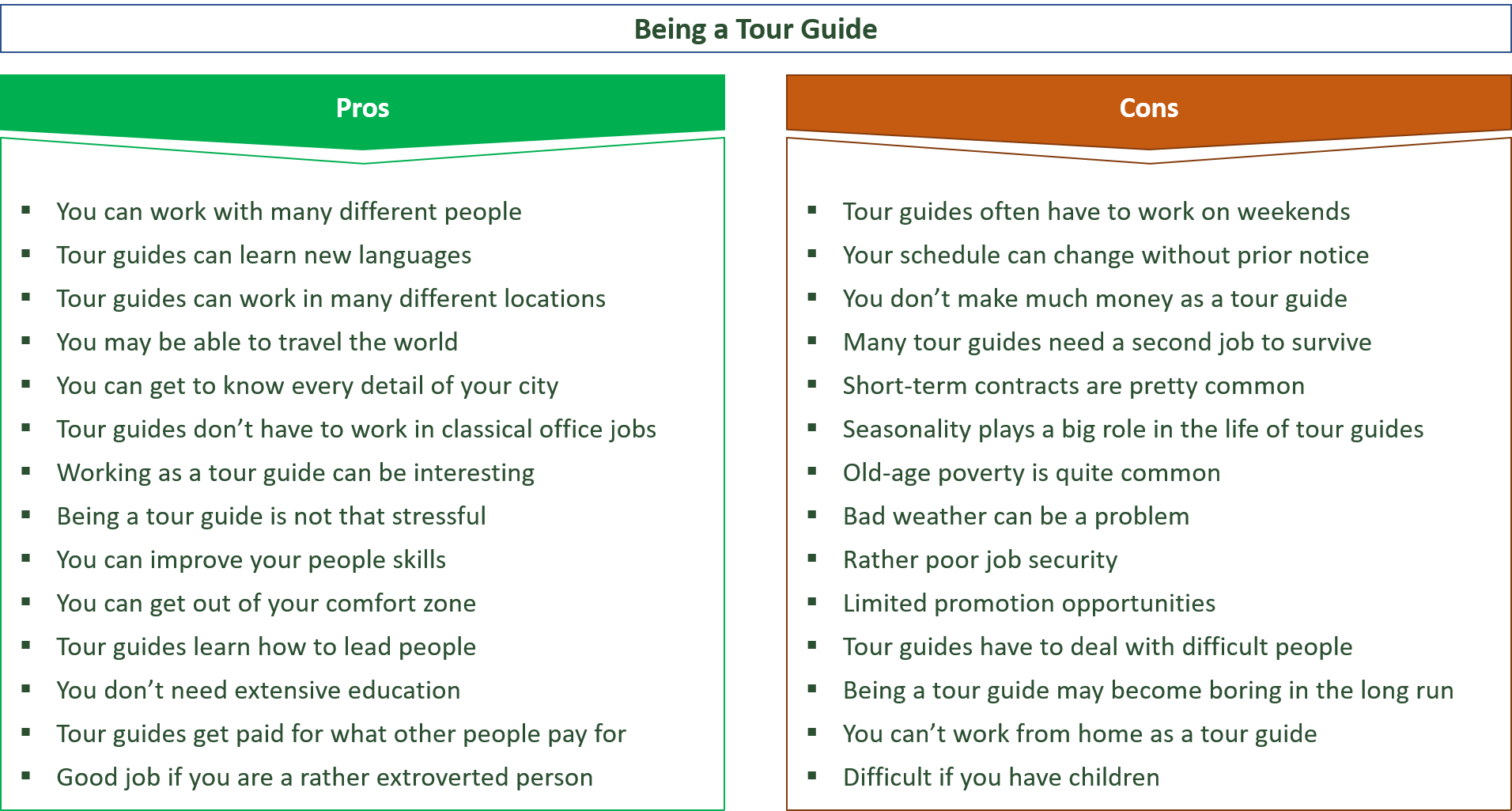
You think about becoming a tour guide?
While working as a tour guide can be great, there are still some issues related to this career path.
Thus, make sure to check out all the pros and cons of being a tour guide in this article.
After evaluating all the arguments, you may change your mind and go for a different job instead.
Table of Contents
Tour Guide Job Profile
Advantages of being a tour guide, you can work with many different people, tour guides can learn new languages, tour guides can work in many different locations, you may be able to travel the world, you can get to know every detail of your city, tour guides don’t have to work in classical office jobs, working as a tour guide can be interesting, being a tour guide is not that stressful, you can improve your people skills, you can get out of your comfort zone, tour guides learn how to lead people, you don’t need extensive education, tour guides get paid for what other people pay for, good job if you are a rather extroverted person.
One advantage of being a tour guide is that you can get to know many different people.
This can be pretty interesting, especially if you have an international audience and can talk to many people from all over the world.
Not only will this give you the opportunity to see the world from a different perspective and to hear many different opinions about politics and about what’s going on in the world right now, it also gives you the chance to make many new friendships over time.
In fact, it is pretty easy to stay in touch over social media thanks to our modern technology and you can easily stay connected with the clients you liked most.
Who knows, maybe you’ll visit them in their home countries one day?!
Having those contacts always helps since you only get to know the real experience on your travels if you know locals in foreign countries and can rely on their expertise.
Since you will meet so many different people from all over the world during your career as a tour guide, you will also be able to learn new languages in a pretty natural manner.
Sure, chances are that your grammar and your pronunciation will not be perfect.
Yet, you will still learn some new words and even this limited knowledge can greatly help you out during your travels since locals will be pretty impressed, especially if you learn some words in a pretty exotic language that almost no tourist speaks at all.
As a tour guide, you can also work in many different locations.
While you might start your tour guide career in your home town, you could also work in many different locations across the country or even work in foreign countries all over the world.
If you are really good at what you are doing and are also able to speak English fluently, you will be able to work in almost every country of our planet as a tour guide.
In fact, many people decided to quit their office jobs and to travel the world.
Many of them now work as tour guides to earn some money while they are able to see many beautiful places and make unique experiences while loan officers and many other people often just work in boring office environments.
This can be pretty nice, especially in case you are still young and don’t have a family yet since you will be free to make your own decisions without having to care about any other opinion than your own.
Another upside to being a tour guide is that you can learn a lot about your own city.
Even though you might have lived in your home town for your entire life, I bet there are still many places you haven’t seen yet.
In fact, many people just stay in certain favorite places in their city, yet they don’t know that there is so much more to experience.
As a tour guide, you will get to know almost every spot of your city since you will always have to provide new experiences for your clients to stay competitive in the long run.
Due to that, you will really get to know every secret spot and this can make your life much better since you will find many new places to spend your time in.
By working as a tour guide, you can also avoid working in front of a computer screen all day long.
Even though some people like working in classical office jobs, many people just don’t like the office world at all.
Hence, if you are the type of person who rather wants to do some exercising during work and doesn’t want to sit on an office chair all day long, working as a tour guide can be much more suitable for you compared to working the classical corporate world.
Another benefit of working as a tour guide is that you can experience so many new things every day.
In fact, no day will look the same and you will often also have to change plans in a rather spontaneous manner.
While this might be annoying to some people, others love this kind of uncertainty.
Your life as a tour guide will also not be that stressful.
Yes, you will sometimes have to deal with difficult clients and some days will just not work out as you want them to be, yet there are many other jobs out there which are far more demanding on both a mental as well as on a physical level.
As a tour guide, you will not have that much time pressure.
You also don’t have a boss who watches you all day long. Instead, you can just work rather independently as long as you are good at what you are doing and your clients are happy with your work.
As a tour guide, you will also be able to greatly improve your soft skills.
Since you will deal with many different people every day of your tour guide career, you will soon figure out how to motivate people and what really drives them.
This is quite important, not only for your life as a tour guide but also on many other occasions of your private life since only if you understand the nature of people, you will be able to push them in certain directions to make your life easier.
Consequently, working as a tour guide also gives you the great chance to really understand human psychology and what happens on a subconscious level.
While many people don’t like getting out of their comfort zones, this can be really beneficial for them since only if you get out of your daily routine, you will be able to really learn new things.
In fact, we as humans learn the most when we do things we have never done before. Even if we fail, we still get plenty of experience out of it.
Through your job as a tour guide, you will experience some failures and you will sometimes also feel uncomfortable, especially when clients are not happy with your work.
However, instead of seeing only the negative, you can also learn a lot from those experiences and can really grow as a character who learns to deal with adversity.
As a tour guide, you will also be responsible to lead people.
While many tour guides are not born with characteristics of a leader, they soon develop those character traits.
In fact, many tour guides start out as rather shy persons.
However, after a while, they realize that there is nothing to be fearful of and that having a leading role can be quite a lot of fun if you know how to handle all of the things that come along with it.
If you learn how to become a true leader, you will have many advantages, not only in your professional but also in your private life and working as a tour guide can really get you to the next level in this regard.
You also don’t have to get fancy education or even a college degree for becoming a tour guide.
In most states, it will be enough to finish high school and you are good to go.
For being a good tour guide, it is much more important that you are really passionate about what you are doing since your clients will feel this and your tour will also be much more authentic.
In fact, most people would rather book a tour guide who hasn’t even finished school but is really passionate about his job compared to someone who has a doctor’s degree but just does not have any drive for what he’s doing.
Therefore, you can avoid spending many years of your life in college to get a fancy degree.
You can also avoid student loan debt that often comes along with college education.
Instead, you can even earn money right after finishing high school and this can give you the opportunity to become independent of your parents pretty soon in your life.
Through your career as a tour guide, you will also be able to see many nice places.
In fact, you can work in locations and make trips for which other people often have to spend plenty of money.
Not only will you be able to see all those nice places for free, but you will actually even get paid for it.
Hence, becoming a tour guide can be great for you if you have a natural interest in seeing many different places since you can follow your passion and can earn money from it at the same time.
Especially if you are the type of extroverted person who loves to talk to people all day long, working as a tour guide can be great for you since you will just meet so many new people and can share your ideas and opinions about many different things with others and you may also learn a lot from those conversations.
While you might think that working as a tour guide is a dream job due to all the advantages that come along with it, there are still some downsides related to this career path which are discussed in the following.

Disadvantages of Being a Tour Guide
Tour guides often have to work on weekends, your schedule can change without prior notice, you don’t make much money as a tour guide, many tour guides need a second job to survive, short-term contracts are pretty common, seasonality plays a big role in the life of tour guides, old-age poverty is quite common, bad weather can be a problem, rather poor job security, limited promotion opportunities, tour guides have to deal with difficult people, being a tour guide may become boring in the long run, you can’t work from home as a tour guide, difficult if you have children, rather low social standing, tour guides have a hard time switching fields.
One disadvantage of being a tour guide is that you often have to work on weekends.
This means that you will just not be able to make nice weekend trips with your family compared to roofers and many other people who have free weekends quite often.
Instead, you will just have to work while many other people out there enjoy their leisure and this can be really frustrating, especially if you see their nice pictures on social media.
You also have to be pretty spontaneous as a tour guide.
Schedules may change unexpectedly since your clients might be late and you may have to work many extra hours due to that.
In fact, many tour guides work extra hours for what they don’t even get paid for and this can be extremely unsatisfying, especially if you really put in the effort and work hard to provide the best experience possible for your clients.
Another downside of working as a tour guide is that you will just not make that much money.
In fact, many tour guides struggle to pay their bills, especially those who live in rather expensive metropolitan areas since rents are often far too high to be affordable for tour guides.
Thus, be prepared that you will just not be able to afford any luxury as a tour guide.
In extreme cases, tour guides may even need a second job to cover their basic expenses.
This is especially true in regions where living costs are quite high and the average income is far above the income of most tour guides.
Hence, be prepared that working as a tour guide may not be enough to stay out of debt, especially if you live in one of those fancy neighborhoods and that you are willing to work in a second job to pay your bills.
Many tour guides also only have short-term contracts with travel companies.
In fact, it is hard to forecast how many tour guides will be needed in the future and you may just get laid off in case you are no longer needed.
Your contract may also just expire and may just not get renewed.
Working as a tour guide is also often pretty seasonal.
Especially if you work in a field where you offer summer activities, you will be basically unemployed in winter since you will just not find any clients who want to book your activities during this time of the year.
Thus, try to find an evergreen niche where you can offer activities all year long if you really want to work as a full-time tour guide for an extended period of time.
Due to the rather low salaries of tour guides, you will also not be able to save enough money for your retirement.
Consequently, many tour guides suffer from old-age poverty and may even end up homeless once they retire since they may simply no longer be able to pay their rent.
As a tour guide, you will also often have to work outdoors.
This means that you will often be exposed to rather bad weather like rain or snow and you will just not have the same comfort level as someone who just works in a cozy office and does not have to worry about outside conditions that much.
You can also never be certain that you will keep your job for an extended period of time.
In fact, tour guides are pretty replaceable and if you are not exceptionally good at what you are doing, chances are that you will just get fired sooner or later and may struggle to find a different job that pays enough to cover your basic expenses.
Another problem with being a tour guide is that you will also have rather limited promotion opportunities.
Even if you do your job pretty well and your clients are happy with your work, you will still not get promoted and will do almost the same work after a decade like someone who just starts out with his career as a tour guide.
While many clients will be nice and you will really enjoy working with them, a minority of people is just difficult and always find reasons to complain about.
Hence, make sure that you are also willing to deal with those difficult people and that you have a stable mindset so that their comments just don’t bother you.
While working as a tour guide can be exciting at first, this excitement can quickly vanish.
In fact, many tour guides get bored with what they are doing sooner or later and secretly wish they had learned something different.
Thus, make sure that you are really passionate about working as a tour guide before deciding for this career path.
While many people who work in classical office jobs for big corporations will have the option to work from home, you will just not have this luxury since you will be present at a specific location to do your tours.
In turn, you will be less flexible to manage your private life since you can’t work location-independently.
In general, being a tour guide is not the best job option in case you have children.
Not only will you make rather poor money, but you will also have to work on weekends pretty often and will just not have time to spend enough leisure with your kids.
Tour guides are also not that appreciated by the general public.
Sure, it is ok to be a tour guide.
Yet, you will not be admired the same way as doctors since you will just not save the lives of many people.
It is also not easy for tour guides to switch fields.
Since tour guides often don’t have high levels of education in different fields, they often get stuck in their jobs.
Therefore, make sure that a career as a tour guide is really what you want to do long-term so that you can avoid any problems in this regard in the future.

Top 10 Being a Tour Guide Pros & Cons – Summary List
Should you become a tour guide.
Now that I have shown you all the advantages and disadvantages of being a tour guide, you should evaluate all the pros and cons of working as a tour guide to make a profound decision in this regard.
If you come to the conclusion that a career as a tour guide is not for you, don’t be discouraged.
There are many other job options out there that you can choose from instead.
If you still want to become a tour guide, you should also get detailed information on salaries, job prospects, future outlook, educational requirements, work-life balance, duties and job satisfaction of tour guides .
Also make sure to check out the following articles:
Advantages and disadvantages of working as a fundraiser
Advantages and disadvantages of working as a comedian
https://en.wikipedia.org/wiki/Tour_guide
https://www.statista.com/statistics/917089/number-of-tour-and-travel-guides-us/
About the author
My name is Andreas and my mission is to educate people about the different career paths that are possible in our current state of the world. In my opinion, people often make the mistake to choose their profession solely based on how much money they can earn from it instead of doing what makes them really happy.
This is quite sad and I just want to give people a more objective picture of how a fulfilling career could look like. I did the same when I started working in consulting after finishing my Master’s degree in Economics. However, I’ve quit pretty soon after that since I haven’t found true meaning in my job.
Now I can do what I really love to do and I want to enable as many other people as well to go this exciting path towards happiness instead of money.
I conducted various interviews with employees to give you a good impression of what working in different fields will look like and that you can make the best possible decision regarding your future career choice.
Wanna support my blog? Share it!
Terms & Privacy Policy

Pin It on Pinterest
Top Qualities of a Good Tour Guide for Amazing Experiences
The difference between an ordinary tour and an unforgettable experience relies on the qualities of a good tour guide. For that reason, finding an amazing tour guide is not easy, and being one also requires effort.
This blog post is as much for those who aspire to become the best tour guides, as is for tour operators. If you run a tour business, you should know what skills to look for in a good tour guide . If you are a tour guide, you should know how to deliver the best experience for your guests.
The qualities of a good tour guide
A good tour guide is made of a combination of qualities related to personality traits and professional skills .
Of course, if you are a tour guide, you don’t need to have them all to shine in your profession, let alone be born with all of those characteristics. Most of it you can learn and improve with experience.
Now let’s take a look at those traits.
Most desirable tour guide personality traits

Many of the qualities of a good tour guide are related with their personality.
When attending a tour, the guest wants to be involved by the story they are being told. Hence, the person who is telling it needs the ability to transmit all the knowledge and emotion of it.
- Mastering the Art of Storytelling Is All Tour Operators Need in 2021
To delight the guest, a good tour guide needs to be:
1. Enthusiastic
It’s pretty much safe to say that enthusiasm is the most important part of this job. The tourists will sense if you don’t feel passionate when you’re talking to them.
Also, when tour guides are enthusiastic about their subject, they are inclined to acquire more knowledge about it. It doesn’t hurt to mention it helps the guides to withstand mentally and physically exhausting experiences.
2. Engaging
Great tour guides will share their knowledge in an engaging, interactive and entertaining way. Effective tour guides also invite questions and interaction from tour members, rather than treating the tour as a one-person show or a school lesson.
The tourists themselves should be interested in the subject matter because they need to be enthusiastic about what the tour guide is saying.
Let’s not forget that the success of a tour often relies on the members of the group getting on well and enjoying the shared experience. The guide can do a huge amount to make that happen by making sure everyone gets to know each other.
3. Communicative
Having strong communication skills is one of the most important qualities of a good tour guide and a must for tour guide personality traits . You could say they need to have extremely good people skills. As much as tour guides need to be able to speak loud and clear, they need to know how to listen.
Good listening skills mean they can understand what the group is interested in. The conversation between the tour guide and guest has to be an interactive relationship, not just one way. Tour guides have to talk to new people daily, and it has to be in an easy-to-understand way.
4. Outgoing
Well, the trait mentioned above leads us directly to this one. It takes communication skills to a whole new level.
There can be a bit of social awkwardness when a new group of strangers shows up, and a guide should be able to break that immediately. That helps people feel comfortable talking to each other and their guide. This ensures, later on, they feel open to add comments or add questions along the way.
The ability to entertain people with stories and anecdotes would be hard for someone with an introverted personality.
A sense of humor is one of the most welcome qualities of a good tour guide. Intrepid Travel’s Dheeraj “Monty” Bhatt, who won the Wanderlust award for outstanding achievement cited “a good sense of humor” as one of the strongest weapons in a guide’s armory.
It especially helps if you can crack a joke in a crisis. Just like being outgoing and enthusiastic, humor can be the perfect tool to cut any tensions. And as always, add an extra layer of entertainment for guests.
6. Decisive
Leadership and decisiveness are important skills of a tour guide. Although they have to be friendly and funny, at the same time they should maintain a certain level of authority.
There will probably be many unpredictable occasions where they’ll need to make a decision. And make it fast. That has been put nicely in the book Conducting Tours: A Practical Guide .
“Tour leaders translate experience and common sense into firm, quick actions.”
Professional tour guide skills

Every tour company will want that their tour guides leave a professional appearance. It instills trust and confidence in travelers. That way, it makes them feel safe and like they made a great tour company choice!
It will certainly help with your goal if your staff has those qualities of a good tour guide:
1. Organized
It comes almost without saying. Tour guides, responsible for organizing and leading a whole group of people, have to be well organized.
Among other things, this involves setting expectations before the tour – informing customers of the location, time, and length of the tour, what should they bring, and/or any rules or special considerations (if your online booking system doesn’t automate this for you).
For tourists, the tour should seem effortless and seamless.
2. Punctual
Punctuality comes hand in hand with organizational skills. Nobody would be happy about having displeased customers if a tour guide didn’t show up on time to meet them.
3. Able to handle the crisis
Improvisational skills are always needed, not just in crisis situations and tour guide traits. Whether it’s just a minor hiccup in the plan or something bigger happened.
A quality of a good tour guide is to always find a way to calm down people, explain everything in the right way and make them feel better. The same goes for preparedness in case of medical emergencies. Some kind of tours can be much more dangerous than others.
Patience is the kind of virtue that any tour guide without it, usually, won’t be very successful. Jonny Bealby, founder of Wild Frontiers came into guiding following a career as a travel writer. He cited “patience, and lots of it” as the premier quality of a tour guide.
Tour guides will sometimes have to be taking time to explain a complicated historical event. Answer questions they’ve already answered multiple times in their speeches. Walk as slowly as is humanly possible, while waiting for a part of the group to catch up with them. A tour guide needs to be comfortable taking things slowly and to do so with a smile.
5. Sensitive
A great tour guide should be sensitive towards the needs of the group. Tour guides must be aware that what is obvious to them may be completely new for their tourists.
Their clients come from different backgrounds and they are presumably in unfamiliar situations. A perfect guide will be attentive and respectful to everyone in the group, making sure that everyone can see and hear well.
They should make sure everyone is as safe and comfortable as possible. It’s important for the tourists’ satisfaction with your tour.
Other qualities of a tour guide: Be well-informed and interested in the location
There’s no need to state the obvious—tour guides have to know what they’re talking about. Ideally, they would be experts in that area. It helps a lot if they are personally interested in what they are presenting.
Travelers will sense it in the enthusiastic tone of their voice. Tour guide presentation style and tone give a unique touch to the tour experience and an irreplaceable sense of authenticity!
These are a few things they should aspire to be:
1. Multilingual
Speaking multiple languages is, if not a necessity, then just an excellent quality in all the tour guide traits. Ideally, your tour guide should speak a range of languages, including your own, as well as the local lingo.
At the very least, tour guides must have a conversational grasp of commonly encountered languages. This knowledge becomes extremely useful if someone has an emergency.
2. Knowledgeable
Knowing a local is truly an asset when it comes to tour guide traits. They must be able to recite facts from memory and be clear on delivering them.
Facts, of course, have to be accurate—otherwise, they should be able to say they aren’t sure and get back to the customer asking.
Guides provide information about the area, including facts that may be of interest to the group. Which means, they should get to know the group.
Storytelling is a key part of the job. A great storyteller will make any story sound like it’s their own.
3. Willing to learn and improve

The great tour guides should continuously work on fine-tuning the tour to make it an exceptional one.
They pay attention to what guests enjoy the most and the least about the tour. They ask the guests some questions and answer theirs. And they encourage guest feedback at the end of a tour.
This trait can help realize what further steps need to be taken to enhance the tour.
These were some of the most important qualities of excellent tour guides. Sure, for even better success, one could always add a few more. For example, a good sense of direction, good pacing (not too slow, not too fast), good health, etc.
Well, if you find a tour guide who’s got all this or if you are this guide—you don’t have to worry about the success of your tour.
Which quality would you add to this article? Feel free to share your thoughts in our LinkedIn group .
ORIOLY on April 26, 2022
by Lidija Šomodi
Subscribe to our newsletter
Receive the latest news and resources in your inbox
Thank you for subscribing the newsletter

Low Budget Digital Marketing Strategies for Tour Operators
In this ebook you will learn strategies to boost your digital marketing efforts, and the best part, at a low and even zero cost for your business.

The Ultimate Guide to Mastering Trip Advisor
TripAdvisor is an excellent tool to sell tours and activities online and this guide will teach everything you need to know to master it.

A Simple Guide on How to Sell Tours With Facebook
Zuckerberg’s platform is by far the most popular among all social media. So why not selling tours and activities with Facebook help?

Comprehensive Guide on Digital Marketing in Tourism for 2021
Online marketing is a new thing and it changes fast, for that reason we made this eBook where we compiled the latest online marketing trends in tourism!
Other resources

Live Virtual Tours: Everything You Need

5 Channel Ideas to Sell your Tours
How to start a food tour business, related articles.

How to Use TikTok to Promote Your Travel Business
Learn how to showcase your tours and activities on TikTok to convert potential customers into new guests for your travel business.

7 Tips to Get More Bookings From Gen Z Travelers
As Gen Z’s influence in travel grows, adapting to these shifts is not just advantageous—it’s imperative to success in the travel industry.

Unlocking Global Reach: The Ultimate Guide to OTAs for Tour Operators
Explore key strategies for tour providers to partner with OTAs like GetYourGuide and Viator, enhancing visibility and bookings.
Winter is here! Check out the winter wonderlands at these 5 amazing winter destinations in Montana
- Travel Guide
How To Describe Being A Tour Guide On A Resume
Published: December 14, 2023
Modified: December 28, 2023
by Nana Bowerman
- Plan Your Trip
Introduction
Being a tour guide is an exciting and rewarding profession that allows individuals to share their passion for travel and culture with others. Whether it’s leading a group through historical sites, showcasing local traditions, or providing expert knowledge about a destination, tour guides play an essential role in creating memorable experiences for travelers.
If you have experience as a tour guide and are looking to showcase your skills and expertise on your resume, it’s important to effectively describe this role in a way that captures the attention of potential employers. This article will provide valuable insights and tips on how to accurately describe being a tour guide on a resume and highlight relevant qualifications and experiences.
Employers understand the importance of hiring a knowledgeable and engaging tour guide who can captivate visitors and provide exceptional customer service. Therefore, effectively describing your tour guide experience can significantly enhance your chances of landing a job in the travel industry.
Whether you have years of experience or are just starting your career as a tour guide, this guide will help you craft a compelling resume that showcases your skills, expertise, and passion for travel.
Read on to learn more about the importance of describing tour guide experience on a resume and discover valuable tips on how to effectively highlight your skills in this role.
Overview of Tour Guide Position
The role of a tour guide is to provide educational, informative, and entertaining commentary to a group of tourists or travelers. Tour guides are responsible for leading tours, providing historical and cultural information, ensuring the safety of the group, and making the experience enjoyable for all participants.
A tour guide’s duties may vary depending on the type of tour and destination. Some tour guides specialize in specific areas such as museums, historical sites, or nature trails, while others may lead city tours or adventure excursions. Regardless of the specific focus, tour guides play a crucial role in enhancing the travel experience by providing insights, anecdotes, and context to the places visited.
Tour guides must possess excellent communication skills to effectively deliver their knowledge and engage with their audience. They should be able to adapt their presentation style to cater to different types of travelers, including individuals, families, or larger groups. Additionally, tour guides should have a deep understanding of the area’s history, culture, and attractions to provide accurate and valuable information to their guests.
In addition to their educational responsibilities, tour guides also need to handle logistical aspects of the tour, such as coordinating transportation, managing time schedules, and ensuring the safety of the participants. They may need to handle unexpected situations or challenges that arise during the tour, demonstrating quick problem-solving abilities and the ability to remain calm and composed under pressure.
Overall, tour guides are passionate storytellers who bring destinations to life, create memorable experiences for travelers, and leave a lasting impression. Their role is instrumental in showcasing the unique aspects of a location, promoting cultural exchange, and fostering a love for travel and exploration.
Next, we will explore why it is crucial to effectively describe your tour guide experience on your resume to make a strong impression on potential employers.
Importance of Describing Tour Guide Experience on a Resume
When it comes to applying for a tour guide position, your resume serves as a vital tool to showcase your qualifications and experience. Describing your tour guide experience effectively on your resume is essential for several reasons:
1. Demonstrates Relevant Experience: Describing your tour guide experience shows potential employers that you have hands-on experience in leading tours, providing commentary, and managing the logistics of travel. It demonstrates your ability to handle the responsibilities and challenges that come with the role.
2. Highlights Expertise and Knowledge: Being a tour guide requires in-depth knowledge of the destination, including its history, culture, and attractions. Describing your tour guide experience allows you to highlight your expertise and convey your passion for sharing information with others.
3. Exhibits Communication Skills: Tour guides must possess excellent communication skills to engage with travelers and deliver information effectively. By describing your tour guide experience, you can emphasize your ability to communicate clearly, adapt to different audiences, and provide engaging commentary.
4. Demonstrates Customer Service Skills: Tour guiding is a customer-centric profession, and employers value candidates who can provide exceptional customer service. By describing your tour guide experience, you can showcase your ability to cater to the needs of travelers, create a positive experience, and handle various customer inquiries or issues.
5. Differentiates You from Other Candidates: Many individuals are passionate about travel and may be interested in pursuing a tour guide career. Describing your tour guide experience on your resume helps you stand out from other candidates by highlighting your actual work experience and proving that you have practical knowledge in the field.
6. Builds Credibility and Trust: When applying for a tour guide position, employers want to hire someone they can trust to represent their brand and provide an exceptional experience to travelers. By describing your tour guide experience, you build credibility and demonstrate that you have successfully performed similar duties in the past.
Overall, describing your tour guide experience on your resume is crucial for conveying your qualifications, skills, and expertise to potential employers. It helps you make a strong impression and increases your chances of securing a tour guide position. In the next section, we will provide valuable tips on how to effectively describe being a tour guide on your resume.
Tips for Describing Being a Tour Guide on a Resume
Effectively describing your experience as a tour guide on your resume is essential for capturing the attention of potential employers. Here are some valuable tips to help you highlight your skills and qualifications in the best possible way:
- Be Specific and Quantify Your Achievements: Instead of just stating that you have experience as a tour guide, provide specific details about the types of tours you have led, the number of participants, and any notable achievements or positive feedback received.
- Emphasize Relevant Skills: Make sure to highlight key skills required for a tour guide, such as excellent communication, knowledge of local history and culture, ability to handle logistics and unexpected situations, and customer service. Showcasing these skills will demonstrate that you are well-equipped for the position.
- Include Relevant Certifications or Training: If you have obtained any certifications or completed training programs related to tour guiding, make sure to include them on your resume. This will further enhance your credibility and show your commitment to professional development.
- Showcase Multilingual Abilities: If you are fluent in multiple languages, be sure to highlight this skill on your resume. Being able to communicate with tourists in their native language is a valuable asset for a tour guide, especially in multicultural or international destinations.
- Use Action Verbs and Concise Language: Start each bullet point under your tour guide experience section with action verbs to make your accomplishments stand out. Use concise language to convey your responsibilities and achievements effectively.
- Incorporate Keywords: Tailor your resume to the specific job description by incorporating relevant keywords. This will help your resume pass through applicant tracking systems and increase your chances of being shortlisted.
- Showcase Your Adaptability: Highlight any experience you have in leading different types of tours, such as educational tours, adventure tours, or cultural tours. This showcases your flexibility and ability to cater to diverse groups and travel preferences.
- Include Testimonials or References: If you have received positive feedback from clients, include testimonials or references on your resume. This adds credibility to your capabilities as a tour guide.
Remember to customize your resume for each position you apply for and tailor your descriptions to emphasize the skills and experiences that are most relevant to the job. By following these tips, you can effectively describe your role as a tour guide and increase your chances of securing a position in the travel industry.
Relevant Skills and Qualifications for a Tour Guide
As a tour guide, there are certain skills and qualifications that are highly valued by employers in the travel industry. Highlighting these skills and qualifications on your resume will demonstrate your suitability for the role and increase your chances of securing a tour guide position. Here are some key skills and qualifications to include:
- Excellent Communication Skills: A tour guide must have exceptional speaking and listening skills to effectively convey information, interact with tourists, and answer questions. Demonstrate that you can communicate clearly, engage your audience, and adapt your communication style to different groups.
- In-depth Knowledge of Destinations: Being a tour guide requires a deep understanding of the history, culture, and attractions of the destinations you will be guiding. Highlight your expertise in specific areas or destinations and showcase your ability to provide accurate and engaging commentary.
- Customer Service Orientation: Tour guides are responsible for ensuring a positive and memorable experience for their clients. Showcase your strong customer service skills, including the ability to cater to diverse needs, handle complaints or issues, and create a welcoming and engaging atmosphere for travelers.
- Organizational and Time Management: Tour guides need to handle logistics, keep track of time schedules, and manage group dynamics. Highlight your organizational skills, ability to plan and coordinate tours, and handle unforeseen situations efficiently.
- Adaptability and Flexibility: Travel plans can change, unexpected situations can arise, and tour guides need to be adaptable and flexible. Demonstrate your ability to handle diverse groups, adjust itineraries, and remain calm and professional in challenging situations.
- Foreign Language Proficiency: If you are fluent in multiple languages, particularly those commonly spoken in the destinations you plan to guide, make sure to include this skill. Being able to communicate with tourists in their native language can greatly enhance the tour experience.
- Leadership and Presentation Skills: Tour guides are responsible for leading and managing a group of travelers. Showcase your leadership abilities, including your ability to command attention, deliver captivating presentations, and create a positive and engaging group dynamic.
- First Aid and Safety Knowledge: It’s important for tour guides to have a basic understanding of first aid and emergency procedures. If you have relevant certifications or training in first aid or safety, include them on your resume.
Remember to tailor your list of skills and qualifications to the specific job requirements and highlight those that are most relevant to the position you are applying for. By showcasing these skills and qualifications, you will demonstrate your ability to excel as a tour guide and increase your chances of securing a position in the travel industry.
Highlighting Tour Guide Experience in Work History Section
The work history section of your resume is where you can provide specific details about your tour guide experience, showcasing your responsibilities, accomplishments, and the impact you made in previous roles. Here are some tips on how to effectively highlight your tour guide experience in this section:
- Start with Job Titles and Dates: Begin by clearly stating the job titles you held as a tour guide and the dates you worked in each position. This provides a clear timeline of your experience and makes it easy for employers to see your progression in the field.
- Describe Your Responsibilities: Detail the specific duties and responsibilities you had as a tour guide. Include information such as leading tours, providing commentary and historical context, ensuring the safety of participants, managing logistics, and creating memorable experiences for travelers.
- Showcase Achievements and Highlights: Highlight any notable achievements or successes during your time as a tour guide. This could include receiving positive feedback from clients, achieving high ratings, or leading successful tours in challenging locations.
- Mention Size and Type of Tours: Specify the types of tours you led, such as city tours, historical tours, or adventure tours. Also, mention the size of the groups you worked with, whether you guided individuals, families, or larger groups. This provides an indication of your ability to handle different types of travelers.
- Quantify Your Experience: Whenever possible, quantify your experience to provide a tangible impact. Include the number of tours you led, the number of participants you guided, and any specific metrics that showcase your success as a tour guide.
- Highlight Cross-Cultural Communication: If you have experience guiding international travelers or working in multicultural settings, emphasize your ability to communicate effectively with people from different cultures and backgrounds. This demonstrates your adaptability as a tour guide.
- Showcase Problem-Solving Skills: Describe any challenging situations or unexpected events you encountered as a tour guide and how you successfully resolved them. This highlights your ability to think on your feet, handle difficult circumstances, and ensure a positive experience for your clients.
- Use Action Verbs and Quantifiable Results: Begin each bullet point with an action verb to give your descriptions more impact and make your achievements stand out. Additionally, wherever possible, include quantifiable results or data to validate your accomplishments.
Remember to tailor your descriptions to the specific job requirements and focus on the most relevant experiences and accomplishments. By effectively highlighting your tour guide experience in the work history section, you will demonstrate your expertise and show potential employers that you are a strong candidate for the position.
Utilizing the Summary or Objective Statement to Highlight Tour Guide Experience
The summary or objective statement at the beginning of your resume is a valuable opportunity to showcase your tour guide experience and set the tone for the rest of your application. It’s a concise paragraph that captures the attention of potential employers and highlights your qualifications and goals. Here’s how you can effectively utilize this section to highlight your tour guide experience:
Summary Statement:
If you have extensive tour guide experience, consider using a summary statement to provide a brief overview of your career and highlight your key qualifications. Here are some tips to craft an impactful summary statement:
- Focus on Your Expertise: Highlight your years of experience as a tour guide, emphasizing your extensive knowledge of different destinations and your ability to deliver engaging and informative tours.
- Showcase Your Specialty: If you have specialized in a specific type of tour or destination, such as historical tours or adventure excursions, mention it to demonstrate your expertise and niche focus.
- Highlight Accomplishments: Include a few notable accomplishments or successes from your tour guide career to showcase your ability to create memorable experiences and receive positive feedback from clients.
- Emphasize Key Skills: List some of the essential skills for a tour guide, such as exceptional communication, cultural knowledge, customer service, and leadership abilities, to give potential employers a snapshot of your capabilities.
Objective Statement:
If you are new to the tour guide industry or looking to switch careers, an objective statement can help convey your enthusiasm and career goals. Here’s how to make an effective objective statement:
- Show Passion and Interest: Express your passion for travel, cultural exploration, and sharing knowledge with others to demonstrate your dedication and enthusiasm for the tour guide position.
- Highlight Transferable Skills: Draw attention to any relevant skills or experiences you have, even if they are not directly related to tour guiding. For example, if you have experience leading group activities or working in customer service, mention how these skills can translate to the role of a tour guide.
- State Your Career Goals: Explain why you are seeking a tour guide position and your long-term aspirations in the industry. This helps employers understand your motivation and commitment to the role.
- Showcase Adaptability: If you have experience traveling or living in different cultures or have multilingual abilities, highlight these attributes as they demonstrate your ability to connect with diverse groups of travelers.
Including Additional Certifications or Training
When describing your tour guide experience on your resume, it is essential to include any relevant certifications or training you have obtained. Additional certifications and training can enhance your qualifications and demonstrate your commitment to professional development in the tour guide industry. Here’s how to effectively include them:
- List Relevant Certifications: Include any certifications that are directly related to tour guiding or the travel industry. This can include certifications in tour guiding, cultural heritage, first aid, wilderness training, or specific destination knowledge. List the name of the certification, the issuing organization, the date obtained, and any specialized areas of focus.
- Emphasize Specialized Training: If you have participated in specialized training programs or workshops related to tour guiding, make sure to highlight them. These could include training on storytelling techniques, public speaking, tour management, or guiding specific types of tours (e.g., food tours, wine tours, or adventure expeditions).
- Showcase Language Proficiency: If you have obtained language certifications or have demonstrated proficiency in multiple languages, it is important to include this information. Fluency in additional languages can significantly enhance your value as a tour guide, especially if the destinations you are applying for have international visitors.
- Highlight Cultural Competency: If you have taken courses or participated in training related to cross-cultural communication, understanding different customs, or cultural sensitivity, be sure to mention them. The ability to navigate and respect different cultures is crucial for a tour guide.
- Provide Details of Training Programs: In addition to listing the certifications and training you have received, briefly describe the content and skills you gained during the programs. This helps potential employers understand the depth of your knowledge and the value you can bring to the role.
- Include Continuing Education: If you are currently pursuing additional certifications or training, indicate this on your resume. It shows your dedication to staying updated with industry trends and further developing your skills as a tour guide.
- Place Emphasis on Most Recent or Relevant Certifications: If you have acquired multiple certifications or undergone various training programs, prioritize listing the most recent or relevant ones. This ensures that potential employers focus on certifications that are in line with their requirements.
By including additional certifications and training in your resume, you demonstrate your commitment to professional growth and highlight your extensive knowledge and expertise as a tour guide. These qualifications can set you apart from other candidates and increase your chances of securing a tour guide position in the competitive travel industry.
Showcasing Communication and Customer Service Skills
As a tour guide, effective communication and exceptional customer service skills are essential for providing a memorable and engaging experience for travelers. When describing your tour guide experience on your resume, it is crucial to showcase these skills to demonstrate your ability to connect with and serve your clients. Here’s how you can effectively showcase your communication and customer service skills:
- Highlight Strong Verbal Communication: Tour guides rely heavily on verbal communication to deliver information and engage with their audience. Describe your ability to communicate clearly, concisely, and engagingly to captivate and educate travelers.
- Demonstrate Listening Skills: Effective communication also includes active listening. Explain how you actively listen to travelers’ questions, comments, and concerns and respond appropriately to ensure their needs are met.
- Emphasize Multilingual Abilities: If you are fluent in multiple languages, highlight this skill as it enables you to communicate with a diverse range of travelers. Mention the languages you speak and your proficiency level in each.
- Showcase Interpersonal Skills: As a tour guide, you interact with various personalities and manage group dynamics. Describe your interpersonal skills, such as being friendly, approachable, and adept at building rapport with travelers to create a positive and inclusive atmosphere.
- Illustrate Cultural Sensitivity: Travelers come from different cultural backgrounds, and cultural sensitivity is crucial to providing an inclusive and respectful experience. Highlight your ability to navigate cultural differences, foster cultural exchange, and ensure all travelers feel valued and respected.
- Describe Problem-Solving Abilities: As a tour guide, you may encounter unexpected situations or challenges during tours. Explain how you have successfully resolved issues, handled difficult situations, and ensured a smooth and enjoyable experience for travelers.
- Highlight Flexibility and Adaptability: Being able to adapt to different scenarios and adjust plans as needed is essential for a tour guide. Showcase examples of how you have adapted your communication style or adjusted itineraries to accommodate diverse traveler needs or unexpected circumstances.
- Share Positive Customer Feedback: If you have received positive feedback or testimonials from previous clients, include them in your resume. Positive customer feedback serves as concrete evidence of your excellent communication and customer service skills.
- Include Relevant Work Experience: If you have prior experience in customer service roles, hospitality, or any other field that required strong communication and customer service skills, mention it on your resume. This demonstrates your ability to provide exceptional customer experiences.
By effectively showcasing your communication and customer service skills, you demonstrate your ability to create meaningful connections with travelers, deliver excellent service, and ensure a positive and memorable tour experience. These skills are highly valued by employers in the travel industry and can greatly increase your chances of securing a tour guide position.
References and Testimonials from Satisfied Clients or Employers
One powerful way to strengthen your tour guide resume is by including references and testimonials from satisfied clients or previous employers. These references and testimonials provide third-party validation of your skills, professionalism, and ability to deliver exceptional tour experiences. Here’s how you can effectively incorporate them:
- Reach out to Clients and Employers: Contact clients or previous employers who were particularly pleased with your tour guiding services and request their permission to use them as references or to provide testimonials.
- Select Best Testimonials: Choose testimonials that highlight different aspects of your tour guide expertise, such as your knowledge, communication skills, ability to create engaging experiences, or exceptional customer service. Select testimonials that align with the requirements of the job you are applying for.
- Include Relevant Details: When including testimonials, provide the name and position of the client or employer, along with their contact information. This allows potential employers to reach out for further confirmation if needed.
- Showcase Diversity: Where possible, include testimonials from clients or employers from different backgrounds, nationalities, or types of tours. This showcases your ability to cater to diverse audiences and strengthens your overall credibility.
- Place Testimonials Strategically: Incorporate the testimonials within your resume, adjacent to the relevant experience or skills being highlighted. This helps potential employers connect the testimonials to the specific qualities you possess as a tour guide.
- Use a Testimonials Section: If you have multiple testimonials, consider creating a separate section specifically dedicated to them. This allows potential employers to quickly scan through the positive feedback and reinforces your expertise and abilities.
- Seek Permission: Before including any testimonials, ensure you have received explicit permission from the individuals providing the feedback. Respect their privacy and confidentiality concerns.
- Update and Rotate: Regularly update your testimonials and include fresh ones to keep your resume current and showcase recent feedback. This demonstrates your continued excellence as a tour guide.
Including references and testimonials from satisfied clients or employers adds credibility and authenticity to your tour guide resume. It provides tangible evidence of your skills and abilities in providing exceptional tour experiences and reinforces your professionalism and expertise. Remember to use them strategically and in alignment with the specific requirements of the tour guide position you are applying for.
Final Tips and Considerations for Describing Being a Tour Guide on a Resume
As you conclude your tour guide resume, consider these final tips and considerations for effectively describing your tour guide experience:
- Use Clear Formatting: Ensure that your resume is well-organized, with clear headings, bullet points, and concise descriptions. Use a professional font and format that is easy to read.
- Customize for Each Job Application: Tailor your resume to the specific job description and requirements of each tour guide position you apply for. Highlight the experiences, skills, and certifications that are most relevant to the role.
- Quantify Your Accomplishments: Whenever possible, use numbers and data to quantify your achievements. This adds credibility and helps potential employers understand the impact you’ve had as a tour guide.
- Showcase Your Passion: Demonstrate your genuine passion for travel, culture, and sharing knowledge with others. This enthusiasm can be contagious and make a strong impression on potential employers.
- Proofread and Edit: Carefully review your resume for any grammatical errors or typos. Ask a friend or colleague to proofread it as well. A well-edited resume conveys professionalism and attention to detail.
- Be Honest and Transparent: Avoid exaggerating or embellishing your tour guide experience. It’s important to be honest and transparent about your skills, qualifications, and achievements.
- Update Your Online Presence: Ensure that your LinkedIn profile and other professional platforms accurately reflect your tour guide experience, skills, and certifications. Potential employers may review your online presence, so consistency is key.
- Continuously Develop Your Skills: Stay updated with industry trends, enhance your knowledge of different destinations, and seek opportunities to improve your tour guiding skills through workshops, training programs, or joining professional associations.
- Prepare for Interviews: Once your resume captures the attention of potential employers, be prepared to discuss your tour guide experience and highlight specific examples during interviews. Be ready to answer questions about handling challenging situations, creating memorable experiences, and providing exceptional customer service.
By following these final tips and considerations, you can effectively describe your tour guide experience on your resume and present yourself as a qualified and passionate candidate for tour guide positions. Remember that your resume is the key to opening doors for interviews, so make sure it accurately reflects your skills, qualifications, and dedication to delivering outstanding tour experiences.
As a tour guide, your role is to create memorable experiences, educate, and entertain travelers. When crafting your resume, it’s crucial to effectively describe your tour guide experience to showcase your qualifications and skills to potential employers. By highlighting your expertise, communication and customer service skills, and relevant certifications, you can demonstrate your ability to excel in the tour guide industry.
Remember to tailor your resume to each job application, emphasizing the most relevant experiences and skills. Incorporate testimonials and references from satisfied clients or employers to add credibility and authenticity to your resume. Also, prioritize clear and concise formatting, proofread your resume to ensure accuracy, and update your online presence to align with your tour guide experience.
Lastly, continuously expand your skills and stay up-to-date with industry trends, always seeking opportunities to enhance your knowledge and provide exceptional tour experiences. By following these guidelines, you can create a compelling tour guide resume that will increase your chances of securing a position in the travel industry.
Now, it’s time to start crafting or updating your tour guide resume. Best of luck in your job search, and may your resume help you embark on an exciting and fulfilling career as a tour guide!

- Privacy Overview
- Strictly Necessary Cookies
This website uses cookies so that we can provide you with the best user experience possible. Cookie information is stored in your browser and performs functions such as recognising you when you return to our website and helping our team to understand which sections of the website you find most interesting and useful.
Strictly Necessary Cookie should be enabled at all times so that we can save your preferences for cookie settings.
If you disable this cookie, we will not be able to save your preferences. This means that every time you visit this website you will need to enable or disable cookies again.

You asked: How do I find a local tour guide I can trust?
Traveling has always come with complications. Our By The Way Concierge column will take your travel dilemmas to the experts to help you navigate the new normal. Want to see your question answered? Submit it here .
“We’re stopping in Casablanca for one day on an upcoming cruise. How can I find a reliable local guide? I’ve found several sites promoting local guides, but I don’t know whether any of them are trustworthy.” — Edith G., Laurel, Md.
A quick Google search will turn up the major tour companies operating in a city — or the ones paying for ads and searching juice — but you’re looking for the right guide to transform your understanding of a new place and avoid tourist traps .
This has become even more challenging as third-party companies and unauthorized guides have proliferated in tourism hot spots, scooping up tickets and driving up prices. Travel is already complicated; a guide should make it easier.
I’ve found plenty of reliable tour guides through social media and Airbnb Experiences . Before a trip to Oaxaca, Mexico, I went down rabbit holes on Instagram , looking at local food influencers and tour companies. Along the way I ended up on the account of Lily Palma, a guide who founded Zapotec Travel by Lily . We coordinated a custom experience over WhatsApp, I sent a deposit in advance and paid for the rest in person, and had a magical time with one of her guides.
Using Airbnb Experiences required far less trawling. For food tours on a trip to Southeast Asia , I looked for local guides and strong reviews in Phuket , Thailand, and Vietnam and was delighted with the outcomes. In Bangkok, I took a risk on a new tour that looked unique but had no reviews; it paid off, and I had a spectacular time learning to cook with Prawit “Wit” Chankasem and his mom Maew at their coconut farm.
To get you started on your hunt, I took a spin through the Casablanca Airbnb Experiences options and thought this history and food tour sounded like a solid pick. In the many detailed reviews, customers described the Moroccan guide as flexible and adaptable, informative and in-depth. You could go on one of his small group tours for $60 per person or book a private one for $300. Another guide had similarly strong reviews, so strong that his tour is described by customers as a “once-in-a-lifetime” opportunity.
I was curious what other travel professionals do, so I reached out to some hotel concierges, travel planners and tour guides for their advice. Multiple industry insiders warned against using mass market sites like Viator or Tripadvisor — which aren’t tour operators themselves but search aggregators.
“The challenge with some those big-box operators is that it is hard for them to vet every experience provider and so there’s a lack of consistency,” said Annie Sim, founder and CEO (chief eating officer) of the Table Less Traveled .
“We recently had a guest of who booked through a big website,” said Sue Yoon, VIP concierge supervisor at the Fairmont Pacific Rim hotel in Vancouver, Canada. “They prepaid and everything and the driver never showed up.”
Yoon says her hotel always opts for local guides they’ve personally vetted and recommends travelers always ask their hotel for input — even if the traveler has already booked something. Many will be happy to double-check your pick. In your case, you could ask your cruise concierge.
Katie Parla, a tour guide in Rome and cookbook author, says to seek out locals who specialize in a field that interests you. If you’re more into food than museums, search for a food historian or a food writer in town who may do tours on the side. Look for expert titles in your guide searches. “Certified guide” doesn’t tell you as much as “art historian” or “former chef.”
Aaron Millar, a British travel writer and host of the “ Armchair Explorer ” podcast, said some of his best experiences were with people who were experts in their field, including a biologist in Costa Rica and a paleontologist in Utah.
“You’ll get next-level insight, but also passion,” Millar said in an email.
You can also skip the search yourself and turn to a well-established travel adviser or planner to help coordinate a custom trip with one of their preferred guides. Such companies tend to have decades-long relationships with independent guides and can vouch for their services, says Haisley Smith, vice president of product development at Internova Travel . They’ll be able to handpick the right guide for your travel style, “for example, one who specializes in food or architecture or history or maybe that is good with families,” Smith added in an email, recommending you try Abercrombie & Kent’s Morocco office .
It usually won’t cost you more to go through a professional. However, Clio Morichini, head of travel and events for Italy Segreta , a magazine and travel planning company, says you can usually expect a higher price point with a locally based or boutique operation versus ones you might find on Viator. But you get what you pay for, Morichini says, as they’re more likely to have vetted their guides several times before — not only to be qualified, but entertaining.
Lastly, Seda Meral, director of the front office for the Hotel Nikko San Francisco , recommends crowdsourcing information through Facebook travel groups or Reddit , or going to a city’s tourism office. She plans to check in with London’s to find tours for her upcoming trip to the United Kingdom.
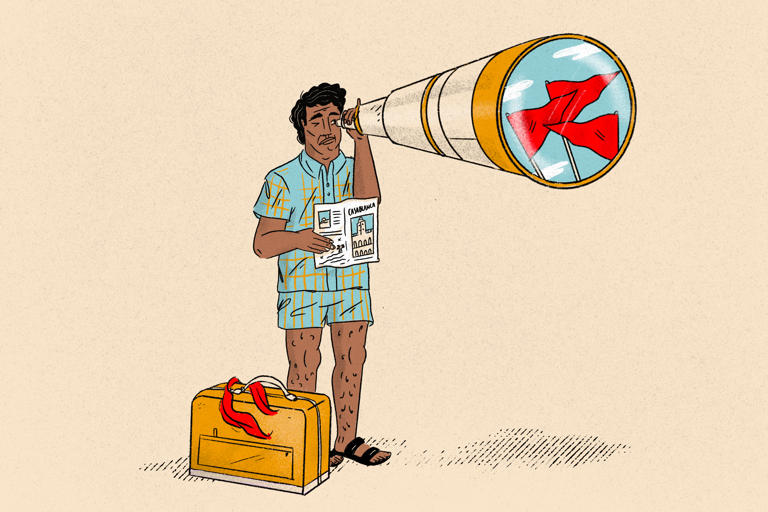
Every product is independently selected by (obsessive) editors. Things you buy through our links may earn us a commission.
The Best Polos for Men, According to Stylish Guys

Years ago, after watching Borg vs McEnroe , I did what any easily influenced filmgoer would do and ordered a Lacoste polo of my own on eBay. To this day, I wear it with denim and the occasional trouser. And, of course, I’m not alone. The humble staple of suburban CPAs and private-schools has long been a foundational piece of menswear, serving as the de facto uniform for a number of Waspy sports and outings — not to mention just being a reliably nice-looking shirt to wear to work or on a date.
As with most basics, there are a lot on the market. All the better to take a discerning eye to the style and hear from the men who wear them best. To come up with this list, I talked to self-professed sporty coastal elites as well as everyday stylish guys with an eye for affordable yet high-quality clothing. Their picks, though varied, all read cooler than the polyester polo your dad wore to his senior prom. Haven’t worn a polo in a while? Consider this your invitation to talk a walk on the preppy side.

“I only started wearing polos in the last five years or so,” says Jason Stewart — a DJ, co-host of How Long Gone , and Substack writer . “You get the comfort of a T-shirt with the respect of being a person who is at least trying.” For Stewart , any polo straight off the hanger has a bit of a try-hard feel to it. His solution: lots and lots of washing to break it in just right. A collar that’s a little worn-in, maybe the slightest fray to the hem — these are the details that make the potentially stuffy style feel lived-in. When I talked to Stewart, he was wearing his favorite polo of late, a Uniqlo piqué number. “I can wear that on a hike or wear this same shirt tucked into a suit and get compliments,” he says of the shirt, which comes in a number of strong neutrals, including black, gray, and a subtle sage-y green.

For slightly less, try the Luxe Touch polo from Banana Republic Factory. It comes in regular and tall sizing in a whole swath of colors and is made of 100 percent cotton with a special anti-odor feature and breathability. At just $20 a pop, it’s affordable enough to buy in multiples and build out your summer rotation.

Ask a boomer dad in your life for a clothing recommendation and there’s a high likelihood he’ll point you to L.L.Bean. And who can blame him? The brand has been the destination for affordable quality in almost every category for decades. Polos are no different. L.L.Bean’s are designed not to wrinkle, fade, shrink, or pill. They also come in tall and regular sizing. The big question is: To monogram or not to monogram?

Winston Jones says that if you think you don’t like polos, you’re just wearing them in the wrong color or fabric. His advice: Look for something with banded arms, a banded bottom, and a little bit of texture, like this handsome option from Mango. If you’re between sizes, Jones suggests sizing down for a fitted feel (his preferred look). Pair it with trousers and you have a quick and put-together outfit.

When it comes to polos, Xavier Donnelly , creative director at Ash Hotels , is picky about two things: length and material. “I like knit polos and long-sleeve polo sweaters,” Donnelly says. “I prefer that they have a ribbed trim at the waist and the sleeves. And I hate when they are too long.” This vintage-inspired option from Abercrombie satisfies both of those specs and is a great gateway polo before investing in one of Donnelly’s other favorites, like his cashmere long-sleeve polo from Ralph Lauren or hot-pink number from Loewe.

“Sometimes you’re in a tucked situation, and sometimes you aren’t,” says Stewart. If you’re in search of a longer-length polo that can do both, he suggests looking to J.Crew’s tall section, where all sorts of colors and styles are frequently marked down. This one has a washed look that helps it appear broken-in straight out of the bag, as well as some subtle texture thanks to the piqué knit. Bonus advice from Stewart for avoiding looking too much like a John Hughes character in your shirt: “Add an ugly hat or shoe to the mix if you want to rough up the preppy image.”

I knew Christopher Echevarria , founder and creative director of both Backstock & Weber and Academy , would have a strong point of view about what makes a polo truly great. Two details, it turns out, can make or break a polo, according to him: buttons and sleeve length. “I like a thick polo with nice mother-of-pearl buttons and a sleeve that isn’t too long,” he told me. Reminiscent of his former caddying fit of chinos and polos, Echevarria loves to sport the staple with chinos or even camouflage shorts. “I love a casual polo like this Oobe one and a denim fit,” he says. The Oobe has a slightly longer length than some of the other polos on this list, though Echevarria told me he’s agnostic on whether or not a polo should be worn tucked in.

“The wrong polo can make you look like you work at an insurance company. The right polo should make you feel like a classic movie star like Paul Newman, Harrison Ford, or one of the kings of cool style, Steve McQueen,” says Jake Bell, who writes the daily Substack Who Do You Know? and specializes in branding, art and creative direction, and content creation. For him, the “right” polo often comes from Noah — specifically this top with a simple embroidered crest on the chest. “This would look great paired with a vintage collegiate sweatshirt on top,” he says. If $128 is more than you want to spend on a polo, try eBay or Poshmark, where pieces from the brand often pop up.

Cody Min is the founder of the creative studio Astronaut Monastery and a lifelong polo wearer. “I’ve always worn polos of varying quality. My grandmother used to get us a polo for Christmas from some Macy’s sale,” he told me. “Every year it was different, and sometimes a bit hit or miss, but we always enjoyed the surprise.” These days, his favorite polos come from Junior’s , an independent brand based in Philadelphia. “They make an absolutely killer all-cotton crêpe polo that breathes insanely well in the summer but holds its shape. It has a perfect knit hemline that stays tucked in nicely and tapers the body perfectly.” His default is to wear polos with trousers in the summer and a safari jacket in the cold months. But no matter the weather, he’s tucking his polo in.

Another favorite polo of Bell’s is this slim-fit one from Stone Island, which he says “will make you look like one of the lads catching some pints watching Manchester United.” He points to the pinstripes on the collar as one of the details that makes this one worth it. Just note: This polo has a front-and-center logo. “The badge logo used to be monochromatic, so it was more subtle, which is my only complaint,” says Bell.

If you’re ready to take your polo game to the next level — and to splurge — Bell recommends this cashmere polo from Todd Snyder. He went to the brand’s Williamsburg store recently to try one on. “I was skeptical about the cashmere for summer, but it’s incredibly breathable and actually lighter than cotton or piqué,” he says. “Their polos really hug you in the perfect way. It features a johnny collar so you don’t need to worry about buttons.”

Years of wearing a uniform as a schoolkid have turned James Hirschfeld, co-founder and CEO of Paperless Post , into quite the polo connoisseur. “The material needs to be a fine cotton piqué or wool-cashmere knit to avoid the back-to-school-uniform feeling,” he says. “I am on the slighter side, so it’s important to me that the arms aren’t cut for a bodybuilder and the length isn’t too long (since I wear them untucked).” Brunello Cucinelli makes Hirschfeld’s ideal polo, but this pick from Zanone is similarly elevated, well cut, and decidedly not a school uniform.
The Strategist is designed to surface useful, expert recommendations for things to buy across the vast e-commerce landscape. Every product is independently selected by our team of editors, whom you can read about here . We update links when possible, but note that deals can expire and all prices are subject to change.
- the strategist
- men's fashion
- men's apparel
- ask a cool person
Every product is independently selected by (obsessive) editors. Things you buy through our links may earn us a commission.
Deal of the Day
Micro sales, greatest hits, most viewed stories.
- 9 Things That Delighted Us Last Week: From Linen Napkins to a Smart Lamp
- The 11 Very Best Shampoos
- How I’d Redo My Baby Registry: 3 Kids Later …
- All the Best Walking Shoes We’ve Ever Written About
- The 7 Very Best Handheld Game Consoles
Today’s Top Clicked
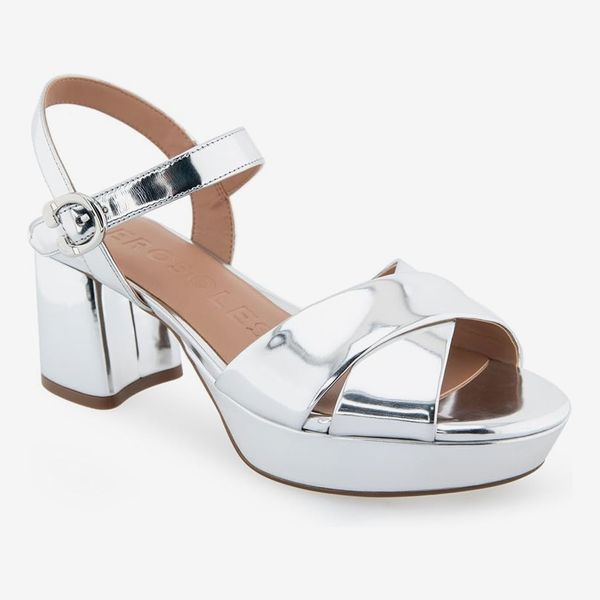
Summer College Tours: Who to Meet and What to Do
Summer allows for longer college visits, but some parts of campus may be closed and some people unavailable.
Summer College Tours Checklist

Getty Images
Whether students are set on a major or still exploring, one of the top priorities should be asking to visit a building where they might spend a lot of their time.
Key takeaways:
- Summer visits allow you to spend more time on campus.
- Professors and others may be unavailable and some buildings may be closed.
- Plan visits when you can meet in person with someone.
While many students and families take college visits during the school year, the summer is still a busy time for college admissions offices to coordinate campus visits. With students not bound by a school schedule or single-day campus tours during the school year, the summer offers more flexibility for students and parents to spend a longer time or multiple days on campus.
“The summer really is an ideal time for that exploration," says Kent Barnds, vice president of admissions, financial aid, and communication and marketing at Augustana College in Illinois. "There’s a little greater flexibility on a college campus then to accommodate visits. Summer is sometimes an ideal time for a student and a family that is at the beginning of the college search and may be a little uncertain about what they want."
Summer visits often allow students and families to explore campus more freely and find parking more easily, says Kelly Nolin, director of undergraduate admissions at the University of Montana .
A less-crowded campus can also be good for students who may feel anxious about the college experience and can be a less-intimidating way for them to acclimate to a campus environment, she adds.
But it also means students won't get a sense of what the campus feels like when everyone is there, Nolin says. Families should also be aware that some professors may not be available and some offices or buildings may be closed or inaccessible during the summer.
But experts say that with some planning and coordination, families can still schedule effective campus visits. Here are some tips for planning summer college tours.
Be Intentional When Planning a Visit
While it's less frequent than during the academic year, some colleges hold formal visit days during the summer to ensure people from certain offices are present, such as financial aid, academic advising , counseling, residence life and career services. Augustana does this each summer, Barnds says, and he encourages families to plan their visits on those days if possible.
An alternative would be to coordinate with a person or office your student sees as a priority, such as a coach for a prospective athlete or a professor in their field of interest, and schedule an in-person meeting with them – then plan the rest of the visit around that. Families who show up unannounced hoping to see certain people or buildings may not have much luck, Barnds says.
“It never hurts to ask if that meeting might be available, but I do think that students and families have to temper their expectations about who may be available on any given day," he says. "That’s one of the reasons why one of the formal days might be better visit opportunities, because usually college campuses might be mobilizing more resources."
Employees on 12-month contracts, such as those in career services , financial aid and residence life , will likely be on campus, Barnds says, but Nolin says it's still best to plan a meeting ahead of time, preferably at least two weeks in advance. Admissions counselors can often help with this.
"Counselors are a great resource for not just the time on campus but for what families might want to do in the area," she says. "They can recommend other things to check out. They can also set realistic expectations for who is and who isn’t on campus."
Who to Meet and What to See on Campus Visits
A crucial part of an effective college visit is getting questions answered and having conversations about important parts of the college experience, such as available courses, extracurricular activities , residence life, joining a Greek organization and what's available through student support services.
Visiting certain buildings and offices and meeting with specific campus personnel can also help students make informed college decisions. Here's who and what should be on that list, experts say.
Speak With Tour Guides
Barnds, who is also Augustana's executive vice president for strategy and innovation, says the most important resource during summer visits is often the student tour guide.
"That experience of going on a campus tour with a current student, having the ability to ask that current student questions, that’s the most important part of that summer visit experience," he says.
If possible, students should elect to take a guided rather than self-guided tour so that someone is there to answer questions or provide access to buildings that might otherwise be closed, he says.
Visit Primary Study Buildings and Meet With Faculty
College tours sometimes take students through campus without entering buildings. Whether students are set on a major or still exploring, one of the top priorities should be asking to visit a building where they might spend a lot of their time, Barnds says.
For example, a prospective biology major should ask to see a lab, while a prospective journalism student should ask to see the journalism building or student publications office.
Nolin adds that students should also visit the campus library and university center, and meet with faculty or other academic representatives in their prospective major.
"This might not be a faculty member since many professors are not on campus during the summer," Nolin says. "However, they may be able to talk with a departmental adviser or recruiter."
Though some professors are off campus or out of town conducting research during the summer, some may still be local and available to meet in person either in their office or at an off-campus location such as a coffee shop. Others may be open to meeting virtually, Barnds says.
Eat at the Campus Dining Center
Some schools require residential students, especially first-year students , to purchase a meal plan , which can cost between $3,000 and $5,500, or much more in some cases. Because of that, and the number of meals students will likely eat on campus , experts say visiting students should eat at least one meal on campus. Some schools provide at least one complimentary meal as part of the visit.
"Summer is a good time to try out the dining center because it’s a lot less crowded, although choices may be limited," Nolin says. "It’s most important for students with allergies or food intolerances to try a meal while visiting so they can make sure their nutritional needs will be met."
If the dining center is closed, Barnds encourages students to ask current students or campus employees to recommend several local restaurants where students often enjoy eating. This allows prospective students to get a taste of what’s available in town and experience the atmosphere off campus.
Tour a Residence Hall
Some schools require first-year students to live on campus , but some students may choose to do so for convenience or other reasons even as upperclassmen. Experts say visiting students should ask to see a residence hall building and a dorm room while on their visit if it's not part of the tour.
These visits can typically be set up through the school's residence life office, and some schools have a model dorm room for students to tour while visiting.
Meet With Student Services and Other Support Personnel
Some students may need additional support while in college, whether for academic tutoring, mental health counseling, physical or learning disability accommodations or special health needs and accommodations. Others may want to meet with people in the diversity office, a campus religious ministry or the health center.
Scheduling those meetings over the summer may allow for more meetings and in-depth conversations with the appropriate people, experts say. Knowing where those offices are located, who to contact and what services are available is important to ask about on a summer campus tour, Barnds says.
"Those are sometimes the facilities people don’t see on their campus tours but are the most important facilities once they actually get to a campus," he says.
Searching for a college? Get our complete rankings of Best Colleges.
14 Tips for an Effective College Visit

Tags: colleges , college admissions , students , education , Tours
2024 Best Colleges

Search for your perfect fit with the U.S. News rankings of colleges and universities.
College Admissions: Get a Step Ahead!
Sign up to receive the latest updates from U.S. News & World Report and our trusted partners and sponsors. By clicking submit, you are agreeing to our Terms and Conditions & Privacy Policy .
Ask an Alum: Making the Most Out of College
You May Also Like
2024-2025 top global universities.
Joshua Welling June 24, 2024

What Are Different Types of Engineering?
Torrence Banks June 18, 2024

Engineering Graduate Degree Jobs
Sarah Wood June 18, 2024

DOE Probe Dings 2 Universities
Lauren Camera June 17, 2024

Does Financial Aid Cover Summer Classes?
Sarah Wood June 17, 2024

Reading, Writing and Conflict Resolution
Shamil Idriss June 13, 2024

Best Global Rankings Coming June 25
Robert Morse and Sam Wellington June 11, 2024

Class of 2024, You’ve Got This
Sara Wahedi June 10, 2024

Mental Health on College Campuses
Sarah Wood June 6, 2024

Advice From Famous Commencement Speakers
Sarah Wood June 4, 2024

Travelers Championship, Round 1: How to watch, featured groups, live scores, tee times, TV times
Change Text Size
Round 1 of the final Signature Event of the 2024 FedExCup Regular Season takes place this week from Cromwell, Connecticut at TPC River Highlands for the Travelers Championship. The field features top-ranked golfers, including world No. 1 Scottie Scheffler, who is already a five-time winner this season, world No. 3 and 2022 Travelers champion Xander Schauffele, as well as defending champion Keegan Bradley.
Here's everything you need to know to follow the action.
HOW TO FOLLOW (all times ET)
Special Programming:
- Saturday: 2:30-3 p.m. on NBC
- Sunday: 2:30-3 p.m. on CBS
Television:
- Thursday-Friday: 3-6 p.m. (Golf Channel)
- Saturday-Sunday: 1-3 p.m. (Golf Channel), 3-6 p.m. (CBS)
PGA TOUR LIVE ON ESPN+
PGA TOUR LIVE is available exclusively on ESPN+
- Main feed: Primary tournament coverage featuring the best action from across the course
- Marquee group: New “marquee group” showcasing every shot from each player in the group
- Featured groups: Traditional PGA TOUR LIVE coverage of two concurrent featured groups
- Featured holes: A combination of par 3s and iconic or pivotal holes
Featured groups
- 10:30 a.m.: Scottie Scheffler, Max Homa
Marquee Groups
- 10:40 a.m.: Jordan Spieth, Wyndham Clark
- 10:50 a.m: Justin Thomas, Shane Lowry
Featured Groups
- 10 a.m.: Jason Day, J.T. Poston
- 10:20 a.m.: Keegan Bradley, Hideki Matsuyama
Featured Holes
- Nos. 5 (par 3), 11 (par 3), 15 (par 4), 16 (par 3)
- 10:20 a.m.: Collin Morikawa, Viktor Hovland
- 10:30 a.m.: Tony Finau, Patrick Cantlay
- 10:40 a.m: Xander Schauffele, Matthieu Pavon
- 9:05 a.m.: Matt Fitzpatrick, Adam Hadwin
- 9:45 a.m.: Ludvig Åberg, Michael Thorbjornsen
Radio on SiriusXM and free at PGATOUR.com/liveaudio :
- Thursday-Friday: noon-6 p.m.
- Saturday-Sunday: 1-6 p.m.
Power Rankings: Travelers Championship
The First Look: Travelers Championship
Purse breakdown: Travelers Championship
Over 50% of Americans work side hustles to support primary income
While side hustles can be lucrative and rewarding, experts advise people to research upfront costs and tax implications for additional work hours they add to each week..
(InvestigateTV) — MarketWatch recently reported that 54% of Americans have taken on side hustles in the last year to supplement their primary income.
David Straughan is a content manager for MarketWatch Guides . He’s also a former avid side hustler.
“Cost of living has gone up tremendously over the last several years. And housing costs, all those things are, you know, life is just a lot more expensive than it used to be,” Straughan explained. “Some people are they’re trying to earn more money to save or to invest in something and then some people are really just getting by.”
Straughan said while side hustles can be lucrative and rewarding, people should remember some of these jobs come with a cost to get started and it’s not always something they can offset with a tax write off. There’s sometimes a long time between spending money and getting it back.
“I think that, you know, culturally, we have a tendency to look at a lot of these jobs as like not professional,” he noted. “And I would caution people against underestimating the amount of professionalism that that should be put into these jobs.”
Straughan said another benefit is there is often a low level of commitment so people can dip their toe in and see how they like the extra work and how it will fit into their life and full-time job.
And if they recognize that something is just not for them early on, they can just stop doing it.
Copyright 2024 Gray Media Group, Inc. All rights reserved.

75-year-old John Force alert after 300 mph crash at drag racing event

2 women, unborn baby killed in head-on car crash, troopers say

7-month-old baby girl dies after being attacked by family’s dog

3-year-old dies after wandering out of foster home, authorities say

2 women, 1 man dead after suspected home invasion, police say
Latest news.

Federal courts halt parts of Biden’s student loan repayment plan

Ottumwa Police charge woman in arson case that left one dead

Heat wave shifts and flood hit communities start recovery

Owner of BBQ restaurant still going strong after celebrating 93rd birthday

Bankruptcy trustee discloses plan to shut down Alex Jones’ Infowars and liquidate assets

IMAGES
VIDEO
COMMENTS
Here are the steps to becoming a licensed tour guide: 1. Determine if you actually want to be a tour guide. Getting paid to travel and visit fascinating sites can be enticing, but it's important to have realistic expectations. Becoming a tour leader does not mean that you get a permanent vacation.
Regarding being a tour guide with 5-star quality, several critical skills are essential. Firstly, excellent communication skills are crucial. A tour guide must effectively convey information, engage with their audience, and answer questions. Clear and concise communication is essential to ensure tourists have a memorable and enjoyable experience.
Being a tour guide is a fun, exciting, and rewarding job. You spend your days sharing your knowledge and chatting with guests. While you will improve your skills naturally with every tour you provide, there are some things you can to more proactive build your skills. In this post, we're sharing 13 tips to help you be a better tour guide ...
Working as a tour guide can be an exciting career choice for people who enjoy being around others. Tour guides meet with different groups of people each day of work and provide engaging experiences and interesting information. Developing the right skills to succeed is important for a rewarding career as a tour guide.
Passion for Adventure: A deep love for travel, exploration, and adventure is the foundation of being a successful tour guide. Your enthusiasm will be contagious and inspire your guests to fully embrace the experience. Knowledge and Expertise: A comprehensive understanding of the destination you are guiding in is crucial.
A step-by-step guide on how to become a tour guide, from training to licenses to the best way to get hired for your dream job! How to Become a Tour Guide A step-by-step guide to becoming a tour guide and getting an job as an international tourist guide. By Mitch Bach, co-founder of TripSchool Introduction The past couple of years have made so ...
A tour guide provides assistance, information, and guidance to individuals or groups of tourists during their travels. Their primary role is to enhance the travel experience by sharing knowledge and insights about the destinations, attractions, and cultural aspects of the places being visited. Tour guides are well-versed in the history, geography, culture, and traditions of the locations they ...
Here is a detailed guide on how to pursue a career as a tour guide: Obtain a High School Diploma: Start by completing your high school education or its equivalent. A strong foundation in subjects such as history, geography, languages, and communication will be beneficial in your future career as a tour guide. Choose a Specialization: Decide on ...
Tour guides' primary duty is to lead groups, making it a great position for developing strong leadership skills. Tour guides use leadership skills to organize, facilitate and lead groups. This can help them become strong, effective leaders, which is often a beneficial skill to have in your career. 11. Career exploration.
Networking is a continual process that enriches your understanding of the industry while providing a supportive community to navigate the challenges and celebrate the triumphs of being a tour guide. Obtain Necessary Licenses & Certifications. In the world of tour guiding, licenses and certifications are badges of professionalism.
3. You will be living the dream. You will be paid to travel. Your job, every day, will be to show first-time travellers their way around a new destination. As a tour guide, 'work' means being a part of someone's happiest holiday memories. You are actually required to have fun for a living while travelling!
Step 3: Prepare for the interview process. The interview round depends on the company's recruitment process. It could be one meeting or a series of meetings. The tour operator wants to see if you are the right fit for them and the real deal. It's time to convince them that you can put your money where your mouth is.
Being a tour guide isn't just about knowing the way; it's about paving the way for unforgettable experiences. It's a role that blends research, storytelling, management, and sheer passion. So, if you've got a penchant for history, a flair for drama, and a heart that loves to meet new people, you're on the right path. ...
10. Avoid these traps: "12 (or 20…) people on the tour is the max.". Rather, let the space and tour guide set the scene. "You MUST plan everything out ahead of time.". In fact, a little spontaneity is good. "Don't do outdoor tours in the winter.". People will still come, even in the snow. "Always have a backup plan in case it ...
2. Sight-Seeing. A Good Tour Guide: Shows his/her group all the sights on the tour. A Great Tour Guide: Maximizes enjoyment on the tour Action Step: Do some research to map out when the best sights will be the least crowded. Listens to what his/her group wants. Action Step: At the request of one of your group members, show any additional sights that they want to see.
1. Embrace being around people when you're working. Being a tour guide means you need to be a people person. Be prepared to answer questions constantly, handle difficult personalities, and herd groups of people around interesting sites and locations. You'll need to be cheerful and upbeat whenever you're on the job.
1. Be present, punctual and full of personality. There are few things worse than a tour guide who isn't engaging, especially when guests arrive with high expectations. Show a vested interest in your guests during the first meeting — especially if you have a few early bird arrivals.
The International Tour Management Institute (ITMI) is a well-known guide program, offering two-week trainings in San Francisco and an annual symposium to connect tour companies with guides. The ...
Becoming a tour guide has numerous excellent benefits, with the best being: 1. Can Work in Different Locations. Depending on the tour guide type, you could work in a variety of locations. Some tour guides offer walking tours around the town or city, others manage tourists going on day trips to sites further away.
Advantages of Being a Tour Guide. You can work with many different people. Tour guides can learn new languages. Tour guides can work in many different locations. You may be able to travel the world. You can get to know every detail of your city. Tour guides don't have to work in classical office jobs.
3. Communicative. Having strong communication skills is one of the most important qualities of a good tour guide and a must for tour guide personality traits. You could say they need to have extremely good people skills. As much as tour guides need to be able to speak loud and clear, they need to know how to listen.
Being a tour guide is an exciting and rewarding profession that allows individuals to share their passion for travel and culture with others. Whether it's leading a group through historical sites, showcasing local traditions, or providing expert knowledge about a destination, tour guides play an essential role in creating memorable ...
Being a tour guide for over 20 years now, here's my take on your question: Pros: Getting the chance to practice a second or third language. I've been able to improve my English language skills significantly, ever since I started working as a tour guide. My Brazilian Portuguese as well.
To get you started on your hunt, I took a spin through the Casablanca Airbnb Experiences options and thought this history and food tour sounded like a solid pick. In the many detailed reviews ...
Writer Erika Veurink talked to stylish guys to hear about their favorite short-sleeve and long-sleeve polos, and they recommended picks from Uniqlo, J.Crew, Banana Republic, Noah, and more.
With students not bound by a school schedule or single-day campus tours during the school year, the summer offers more flexibility for students and parents to spend a longer time or multiple days ...
As an example, the B&R Self-Guided Burgundy trip includes an expert-led wine tasting at the luxury hotel the first night, a meet up with a local guide for a guided tour of medieval Beaune the ...
On the Range: PGA TOUR LIVE's "On the Range," with live action straight from the practice grounds at TPC River Highlands. The show will include expert analysis, Golfbet previews and DraftKings ...
(InvestigateTV) — MarketWatch recently reported that 54% of Americans have taken on side hustles in the last year to supplement their primary income. David Straughan is a content manager for MarketWatch Guides.He's also a former avid side hustler. "Cost of living has gone up tremendously over the last several years.
06/24/2024 June 24, 2024. Tourists coming to the India-administered Kashmir love the region's glorious snow-capped mountains. But the journey up to glaciers can be both challenging and dangerous.